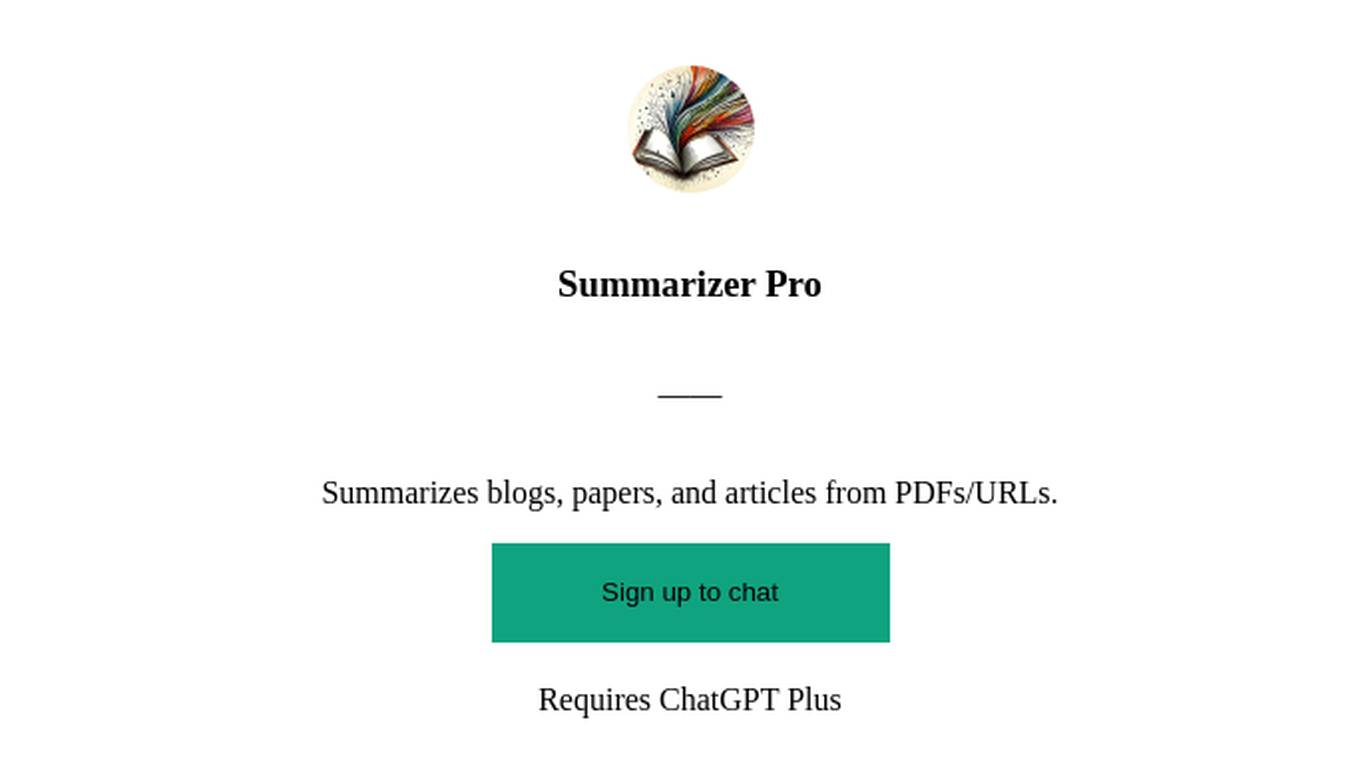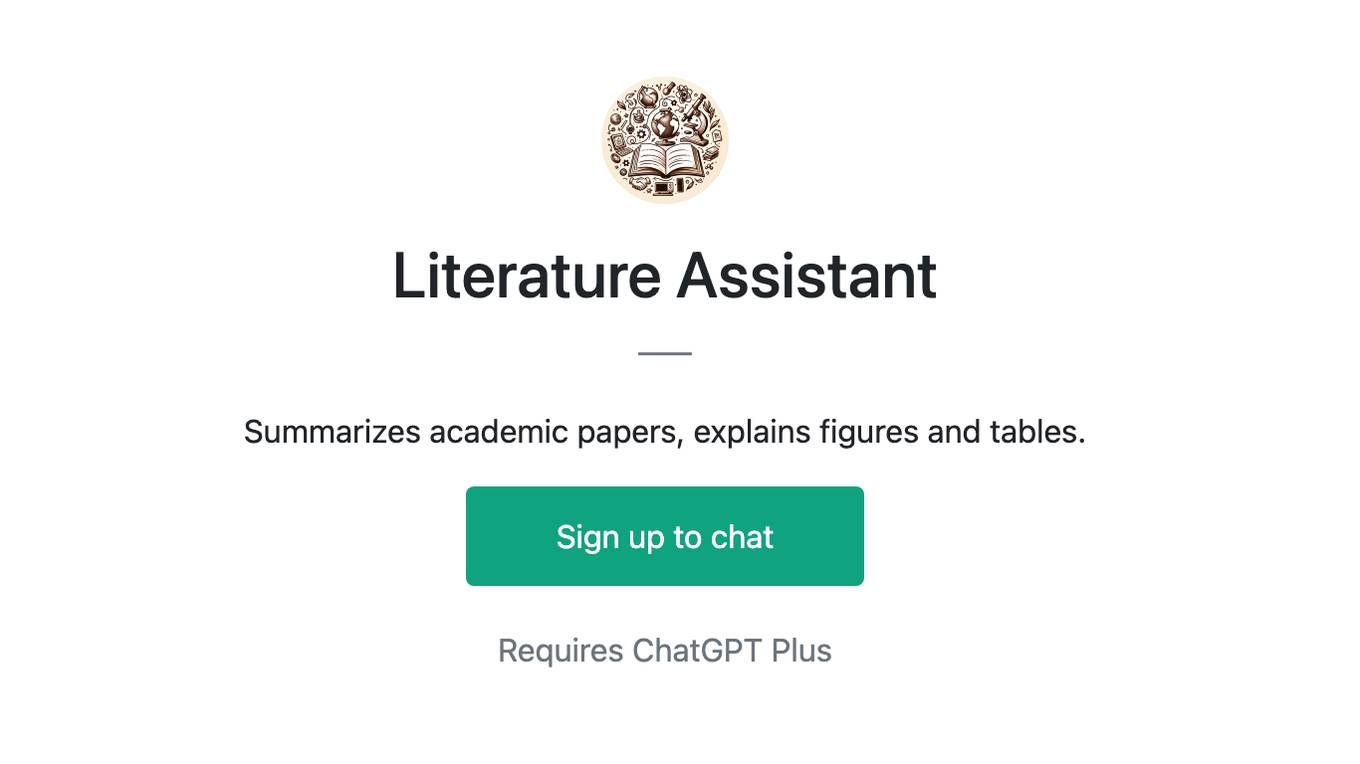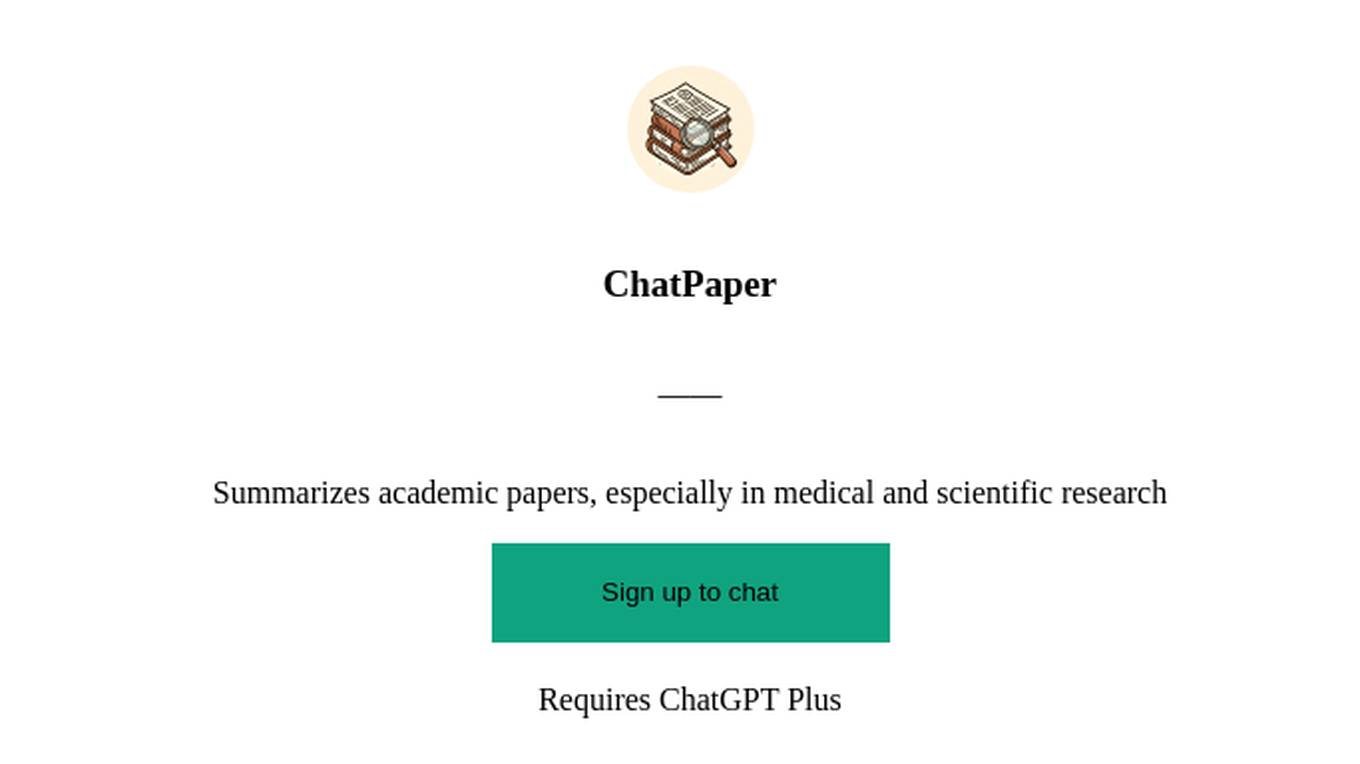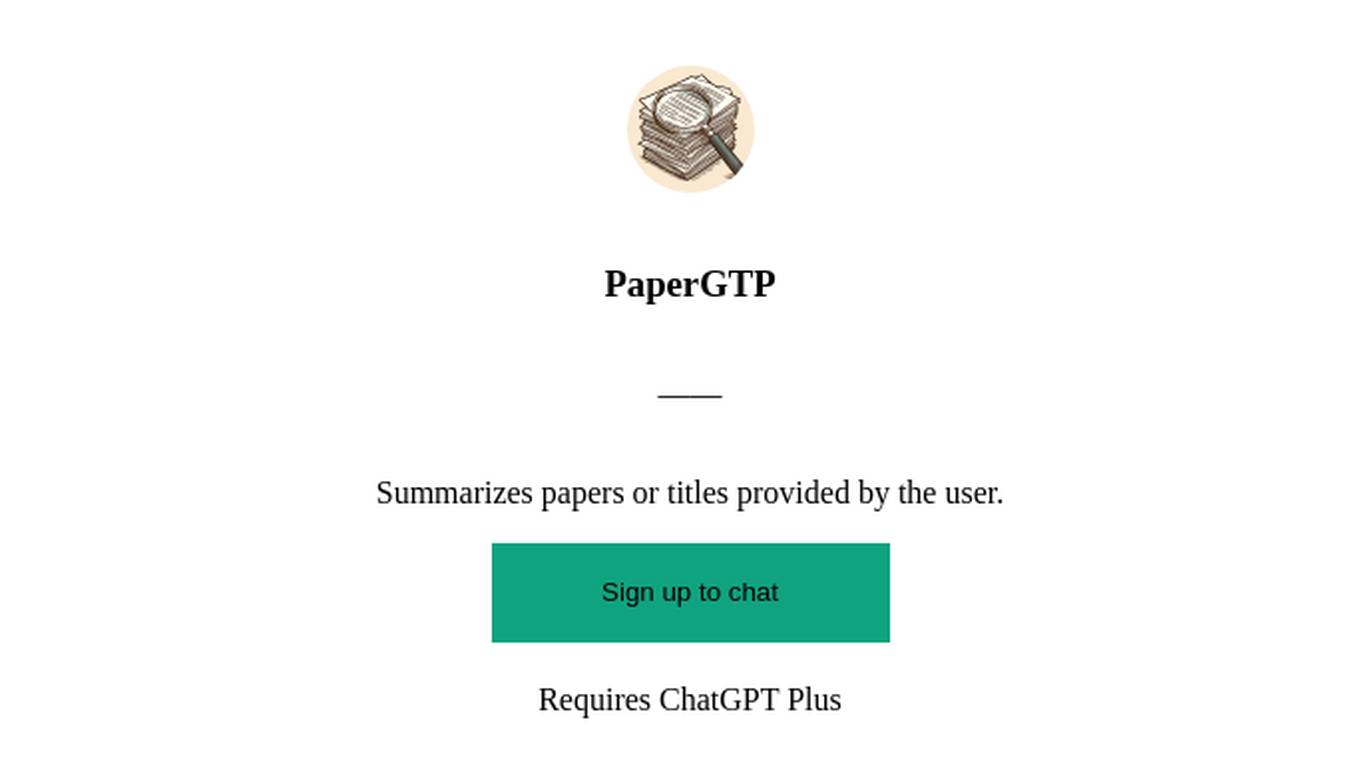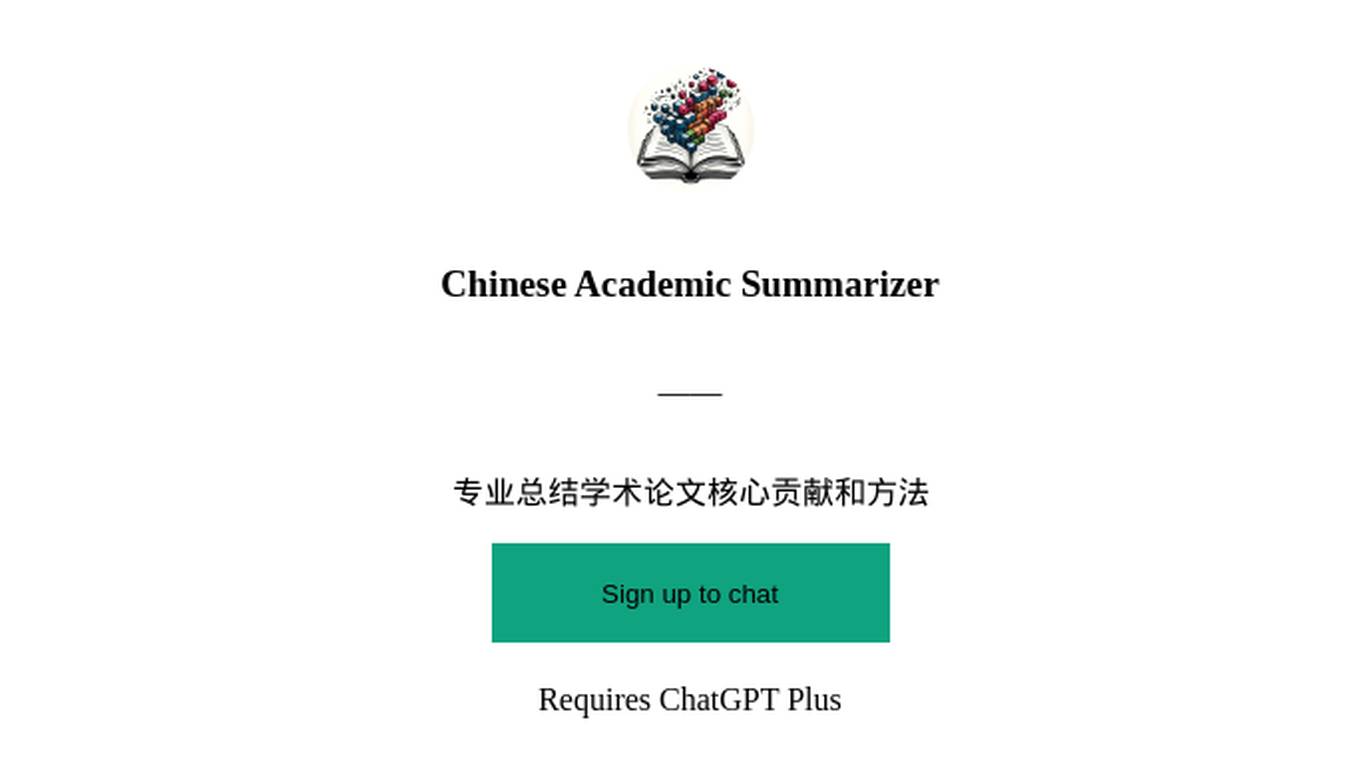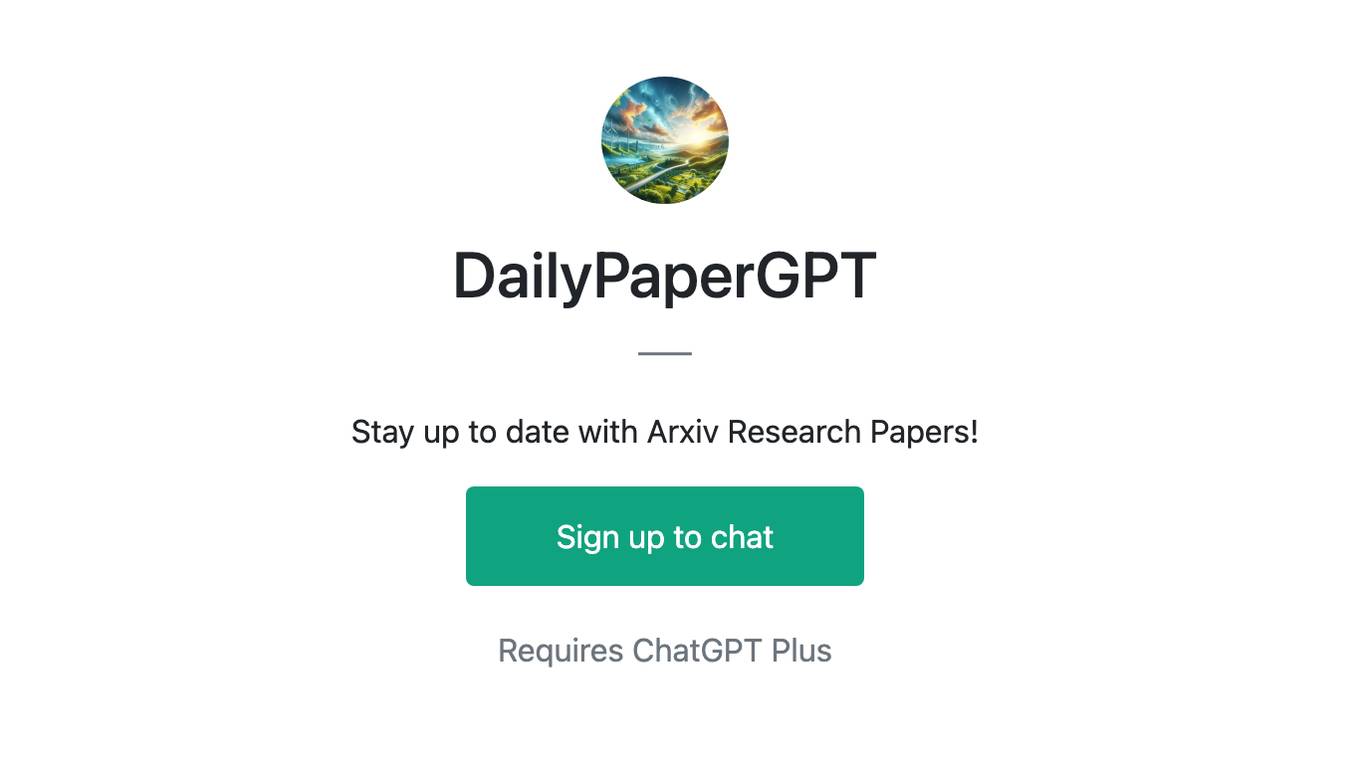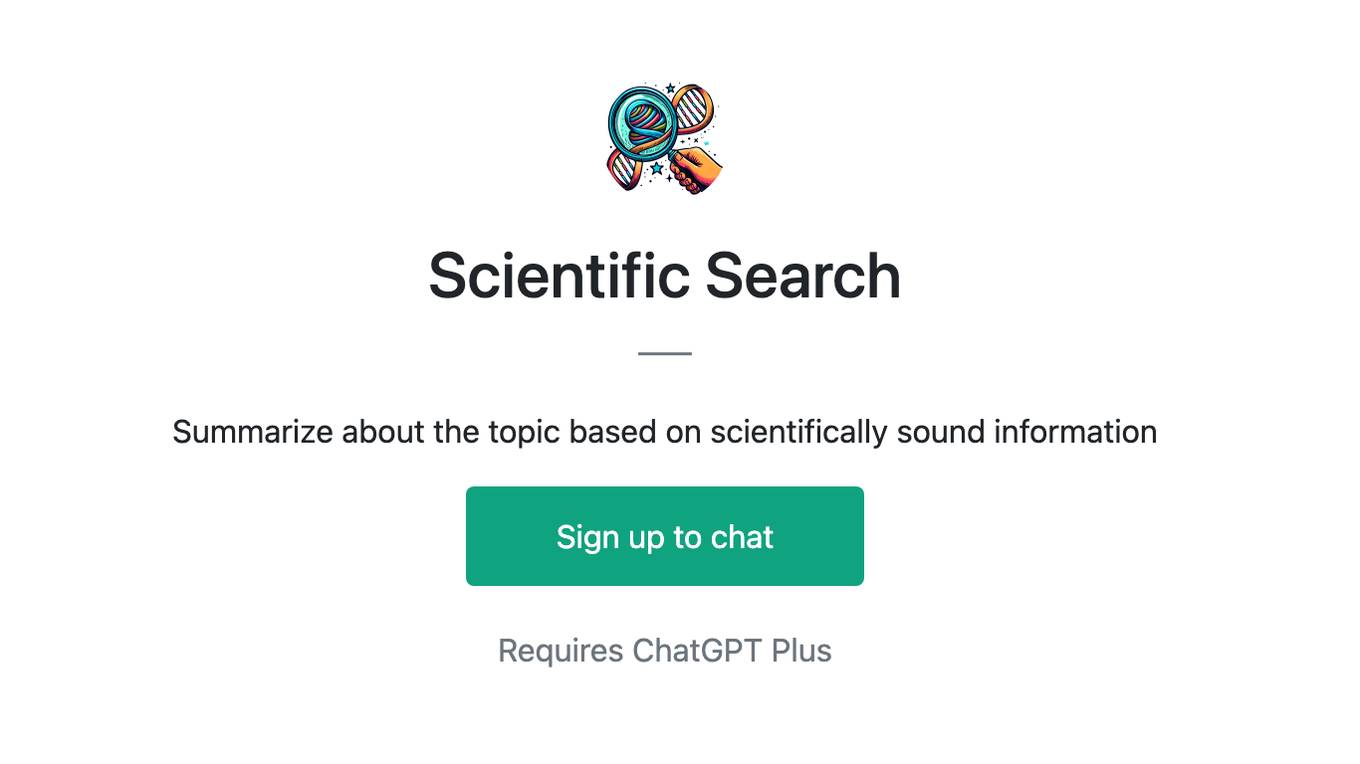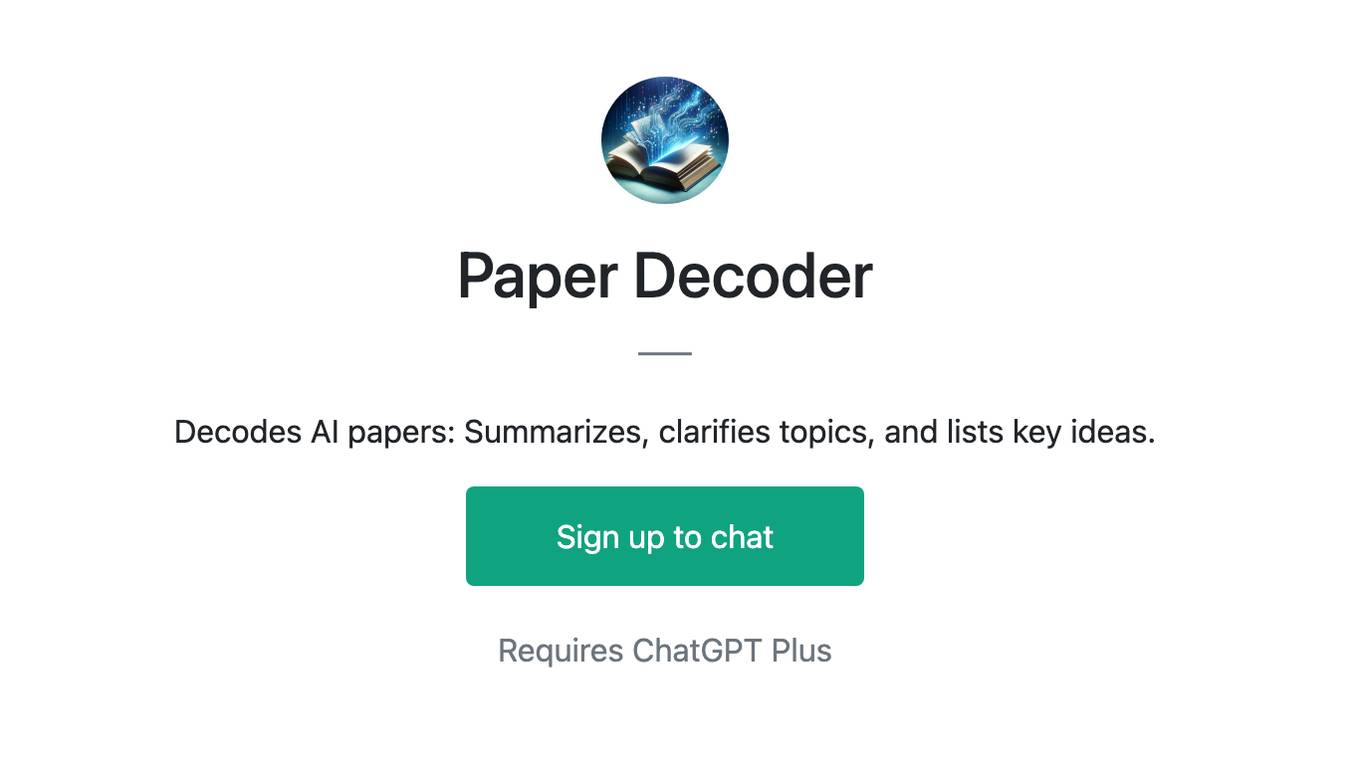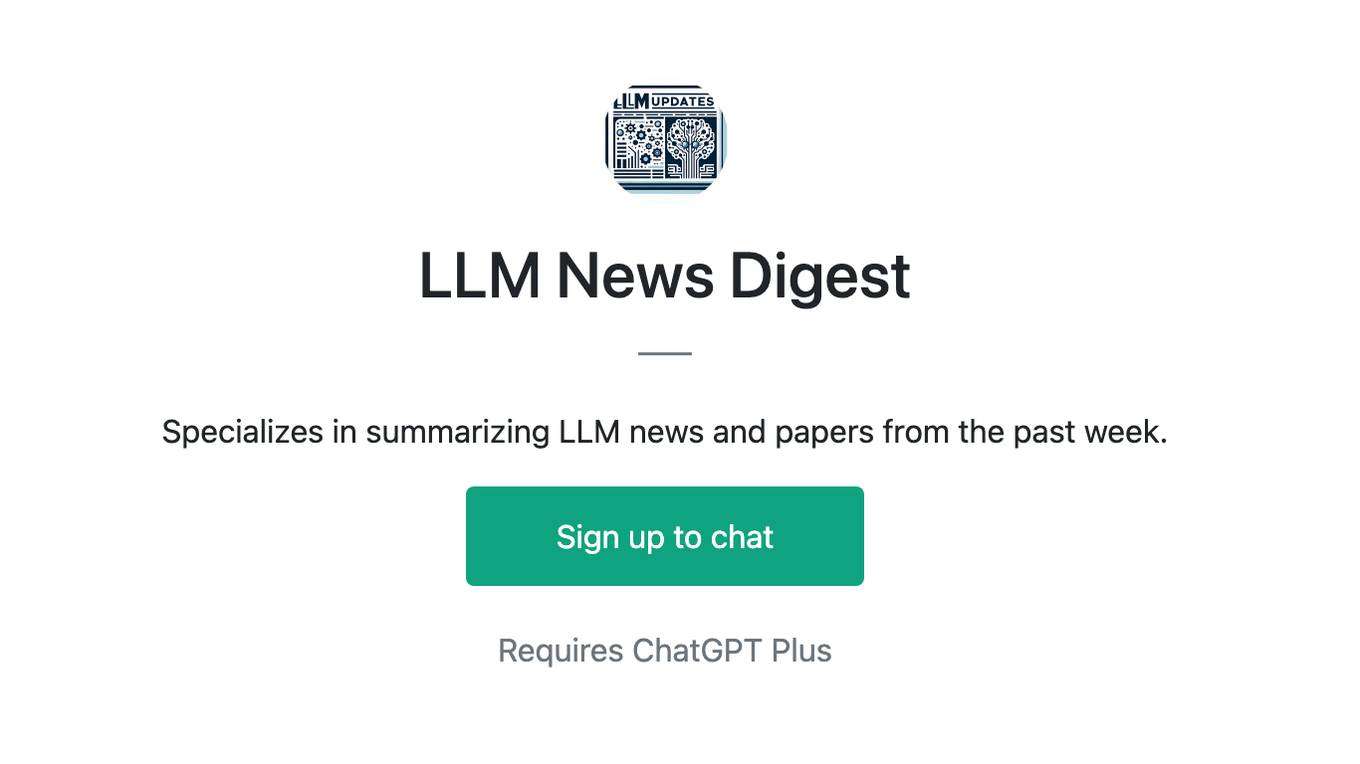Best AI tools for< Summarize Papers >
20 - AI tool Sites
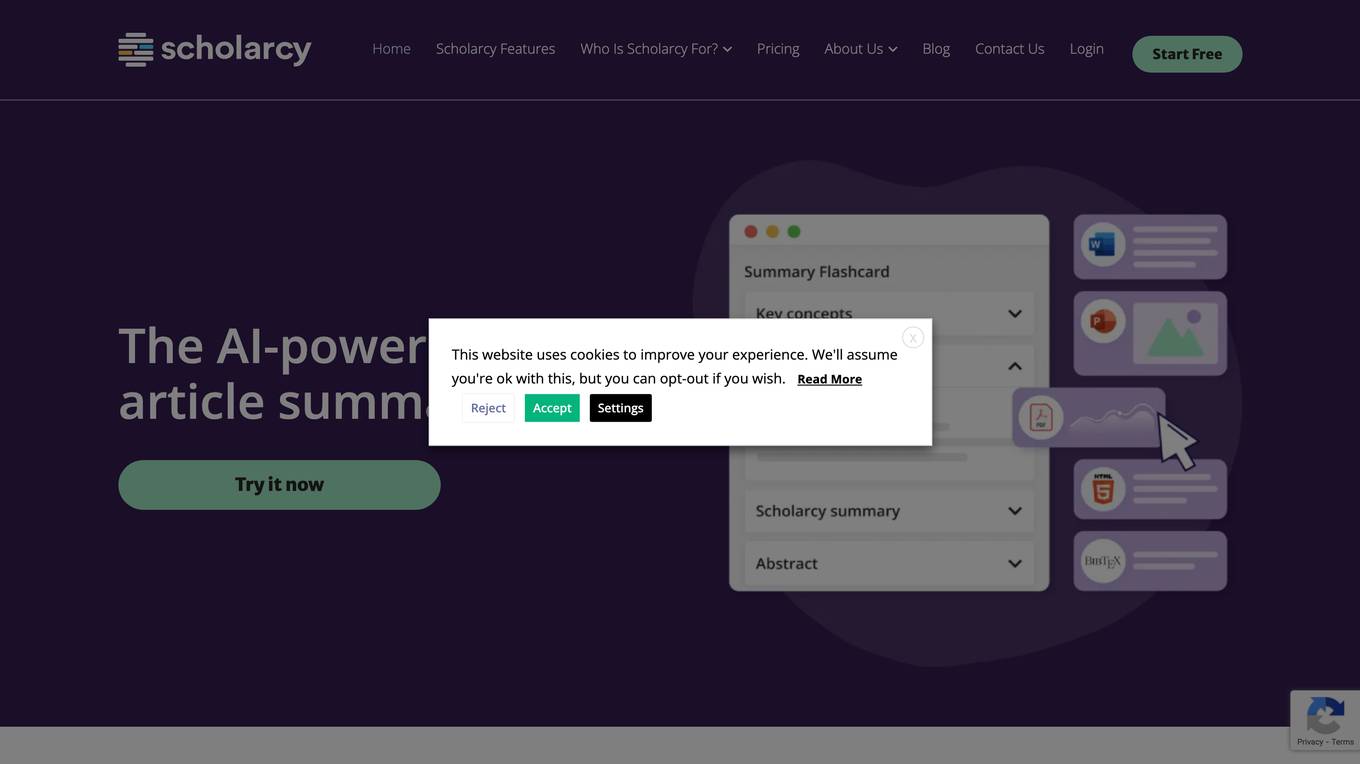
Scholarcy
Scholarcy is an AI-powered tool that helps users to summarize and analyze academic papers efficiently. By utilizing advanced algorithms, Scholarcy can extract key information from research articles, enabling users to save time and enhance their understanding of complex topics. The platform offers a seamless experience for researchers, students, and professionals looking to streamline their literature review process and extract valuable insights from scholarly articles.
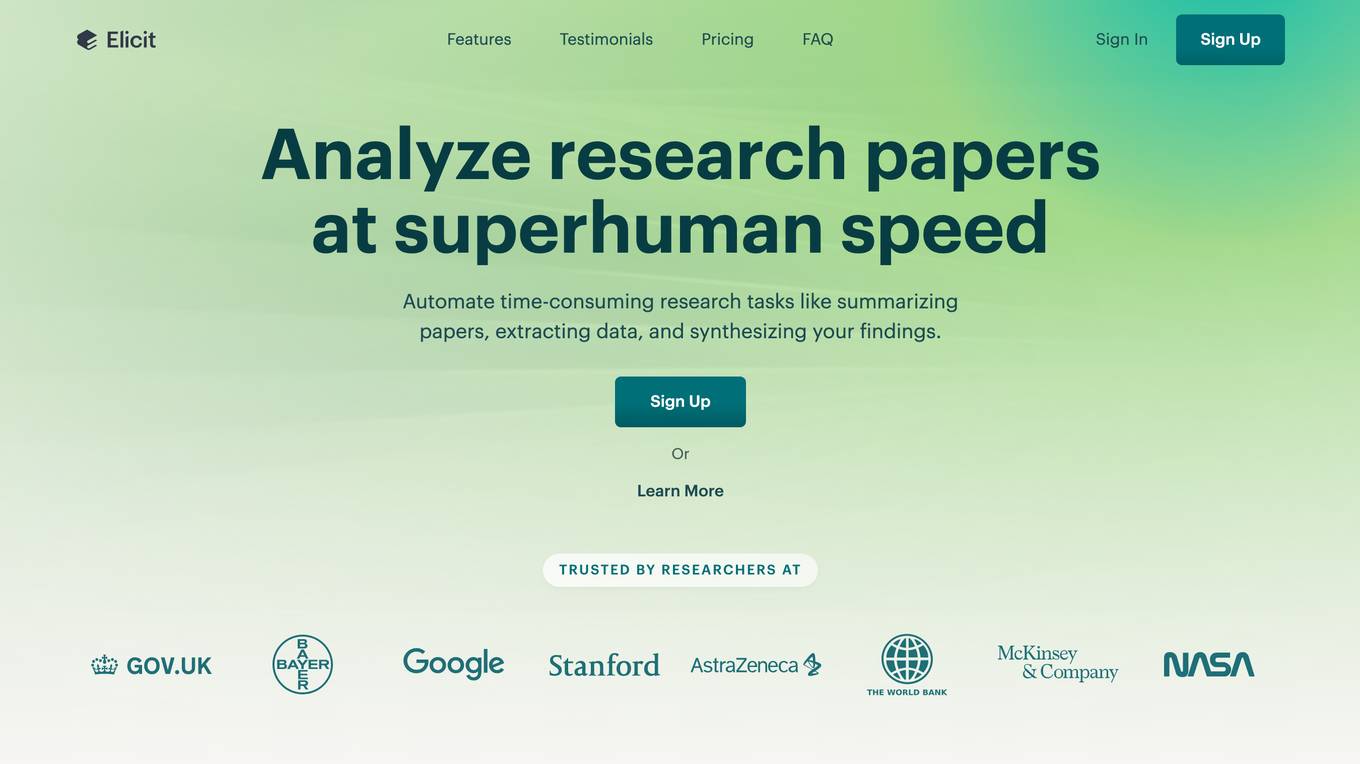
Elicit
Elicit is a research tool that uses artificial intelligence to help researchers analyze research papers more efficiently. It can summarize papers, extract data, and synthesize findings, saving researchers time and effort. Elicit is used by over 800,000 researchers worldwide and has been featured in publications such as Nature and Science. It is a powerful tool that can help researchers stay up-to-date on the latest research and make new discoveries.
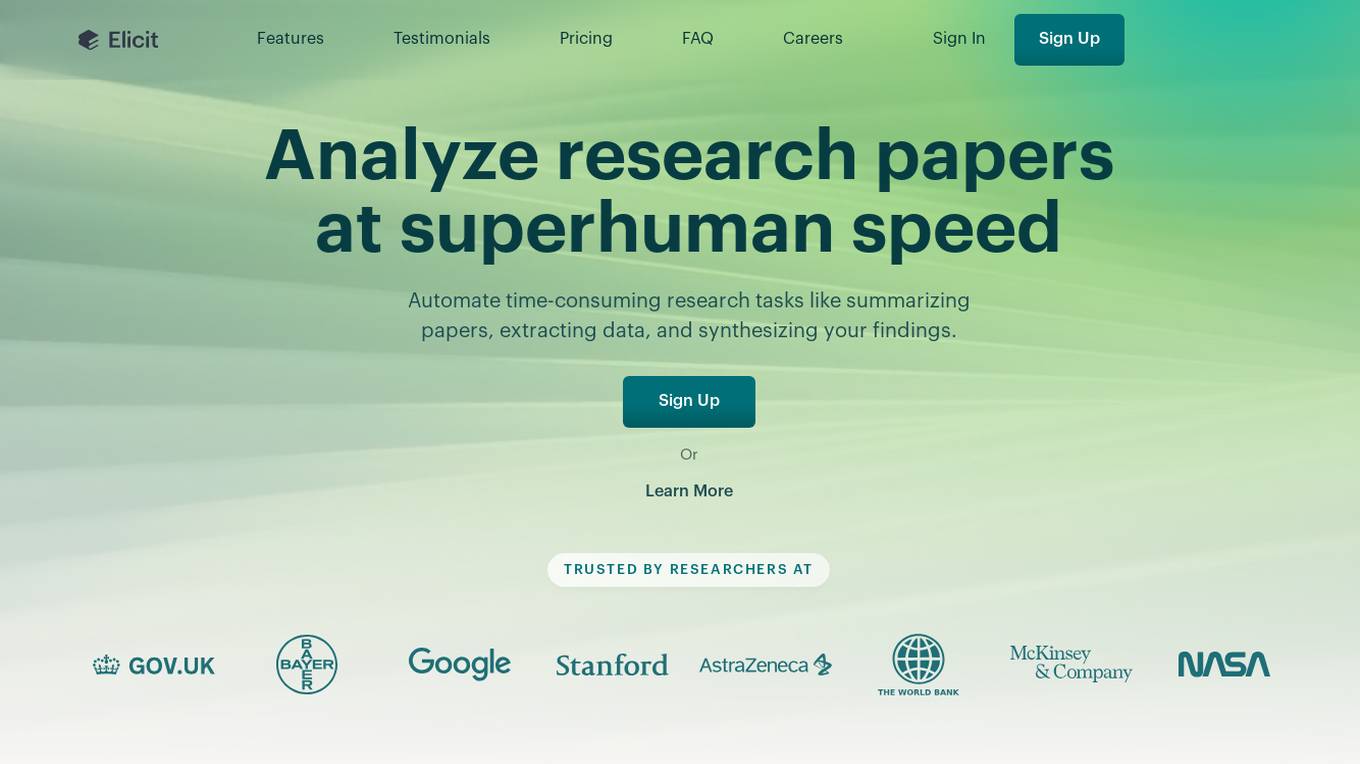
Elicit
Elicit is an AI research assistant that helps researchers analyze research papers at superhuman speed. It automates time-consuming research tasks such as summarizing papers, extracting data, and synthesizing findings. Trusted by researchers, Elicit offers a plethora of features to speed up the research process and is particularly beneficial for empirical domains like biomedicine and machine learning.
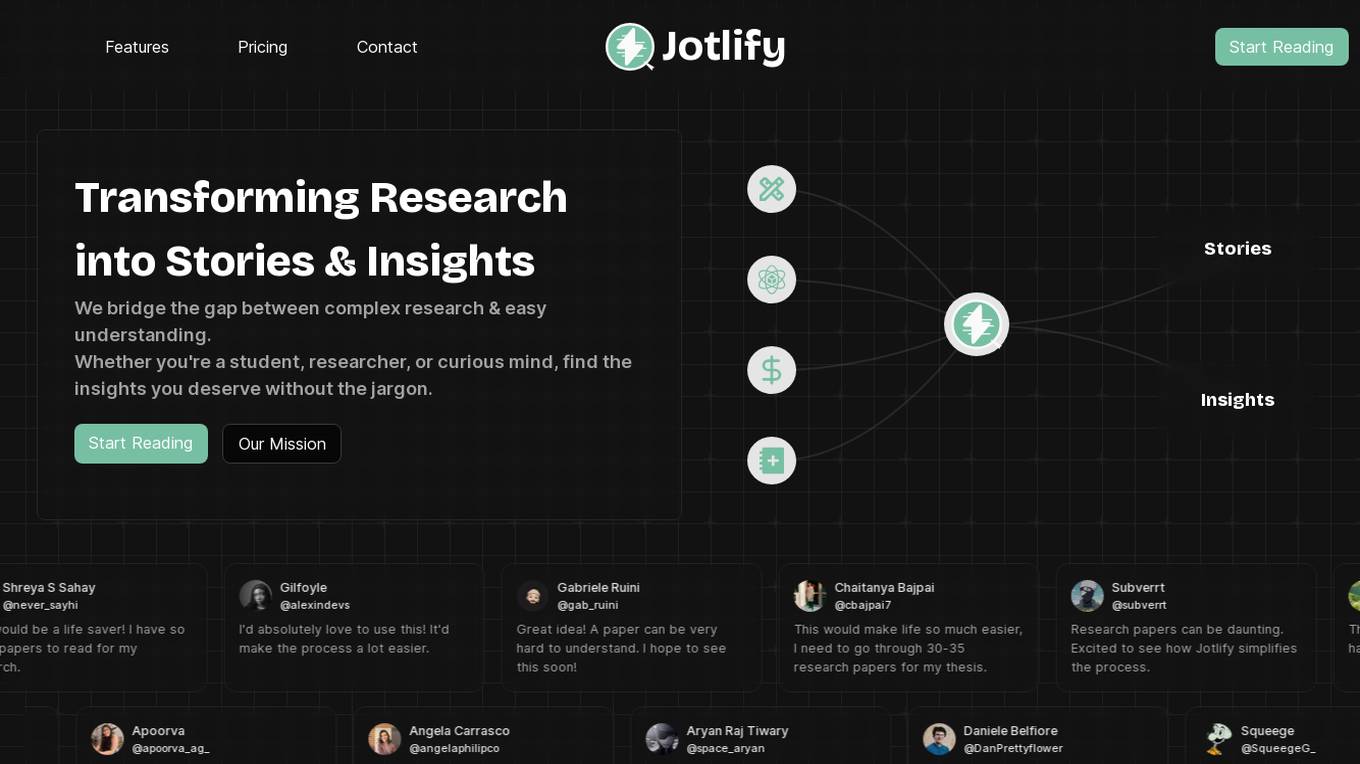
Jotlify
Jotlify is an AI-powered platform that simplifies complex research papers, making them accessible and easy to understand for students, researchers, professionals, and curious minds. It transforms dense academic content into engaging stories and insights, bridging the gap between complex research and easy understanding. With Jotlify, users can uncover stories and insights that can transform their understanding and impact various aspects of their lives.
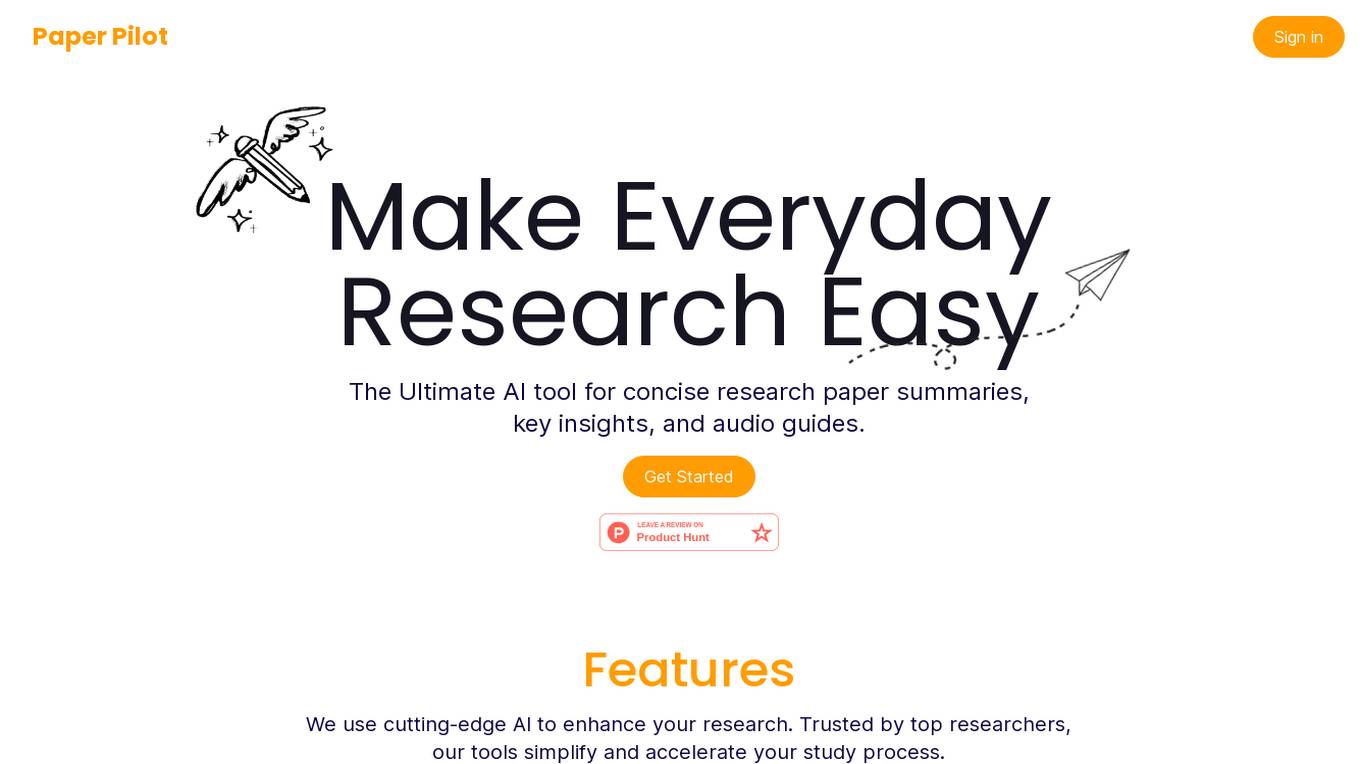
Paper Pilot
Paper Pilot is the ultimate AI tool for concise research paper summaries, key insights, and audio guides. It uses cutting-edge AI to enhance research by providing quick, precise summaries of research papers, organizing research boards, and offering an interactive chat for AI-specific questions. Trusted by top researchers, Paper Pilot simplifies and accelerates the study process, saving valuable time and effort.

Paper Interpreter
Paper Interpreter is an AI application developed by Daichi Konno, a medical doctor and neuroscientist at the University of Tokyo. The application allows users to input a PDF or URL of a research paper and receive a simplified explanation generated by an AI assistant. It gained significant popularity shortly after its release, ranking 6th globally and 1st in Japan in terms of usage. The tool aims to make academic research more accessible and understandable to a wider audience.
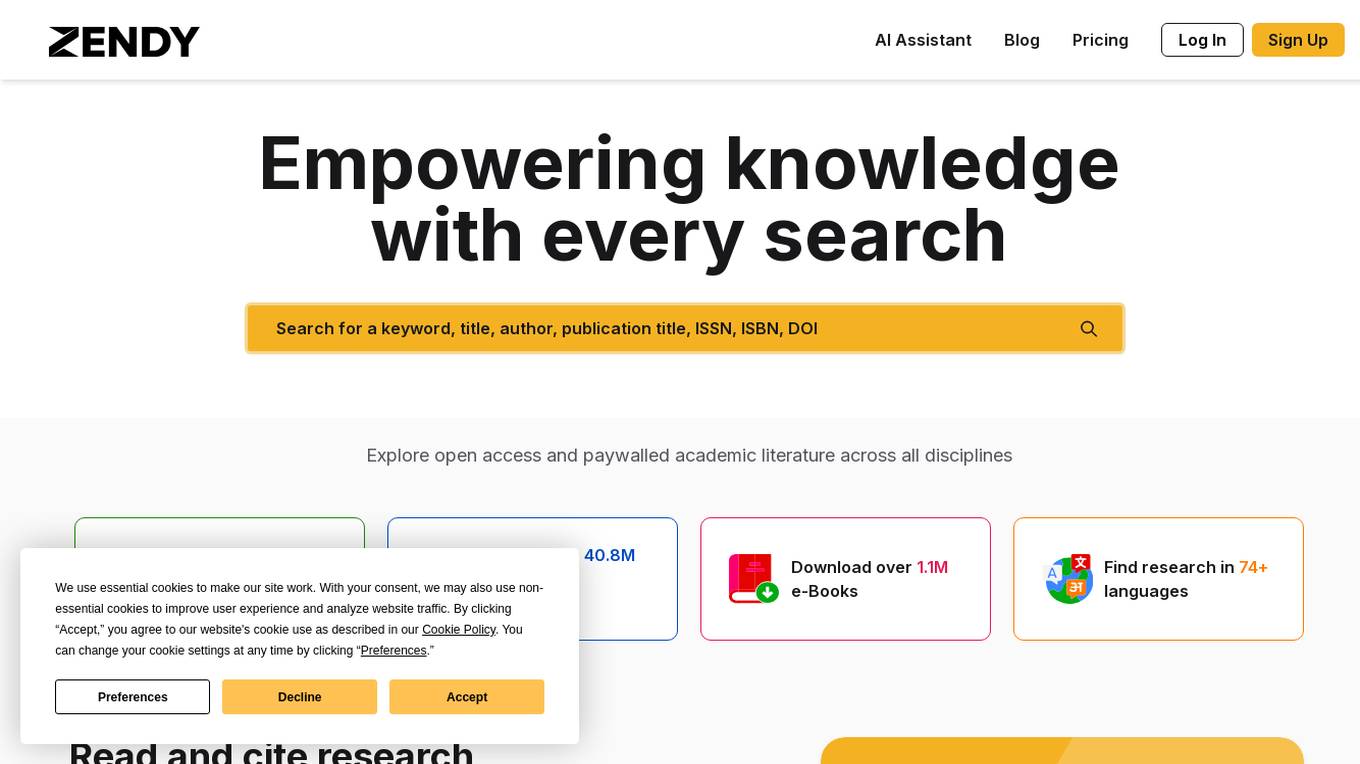
Zendy
Zendy is an AI-powered research library and AI assistant that empowers users to explore open access and paywalled academic literature across all disciplines. It offers tools for faster reading and citing of research papers, including AI summarization, key phrase highlighting, and organizing reading lists. With a user-friendly interface, Zendy helps users save time during literature review, making research more efficient and productive.
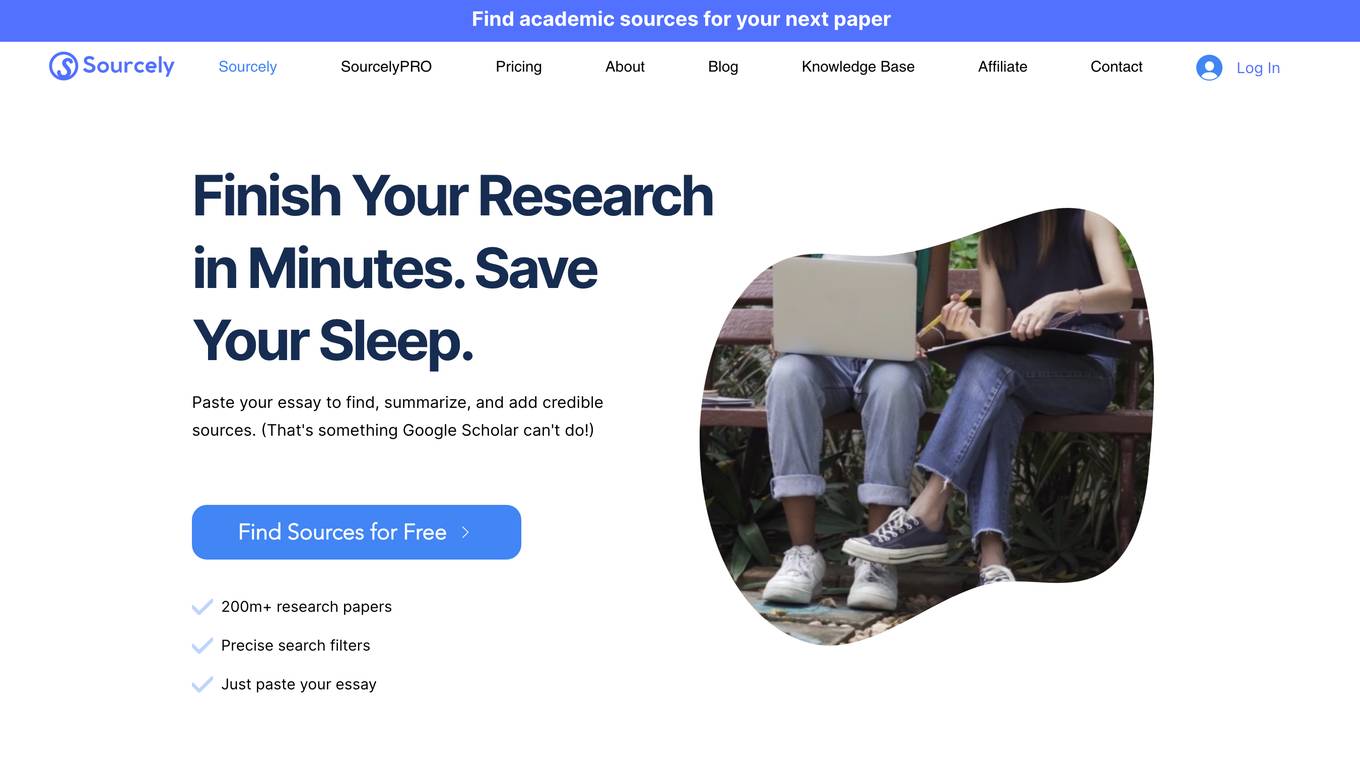
Sourcely
Sourcely is an AI-powered academic search assistant designed to help users find, summarize, and add credible academic sources efficiently. With access to over 200 million research papers and advanced search filters, Sourcely streamlines the research process by finding sources, summarizing them, and exporting citations instantly. It offers features such as advanced citation tools, precise search filters, targeted citations, free PDF downloads, citations library, credible summaries, and export references in various formats. Sourcely is a valuable tool for researchers, students, and professionals looking to enhance the quality of their work and save time in sourcing and referencing.
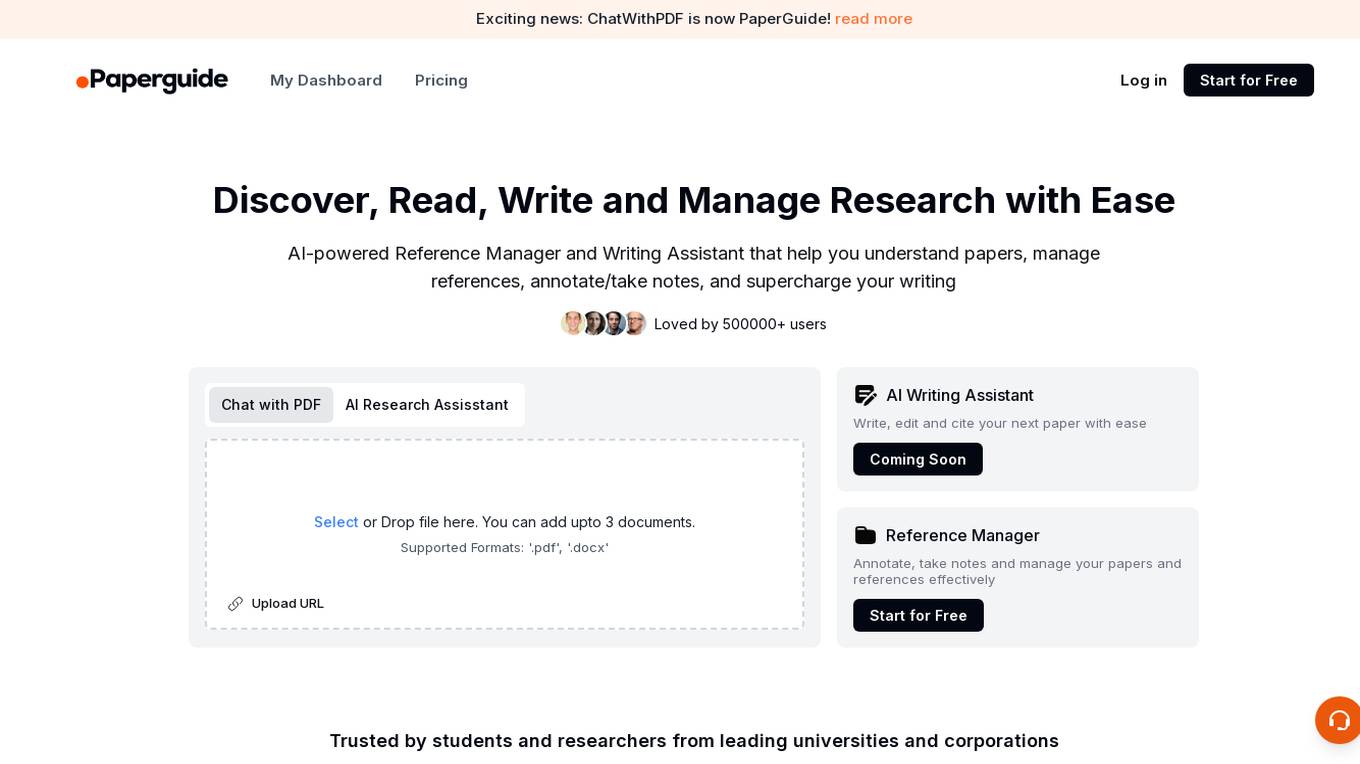
Paperguide
Paperguide is an AI Research Platform that offers an all-in-one solution for researchers and students to discover, read, write, manage research papers with ease. It provides AI-powered Reference Manager and Writing Assistant to help users understand papers, manage references, annotate/take notes, and supercharge their writing process. With features like AI Search, Instant Summaries, Effortless Annotations, and Flawless Citations, Paperguide aims to streamline the academic and research workflow for its users.
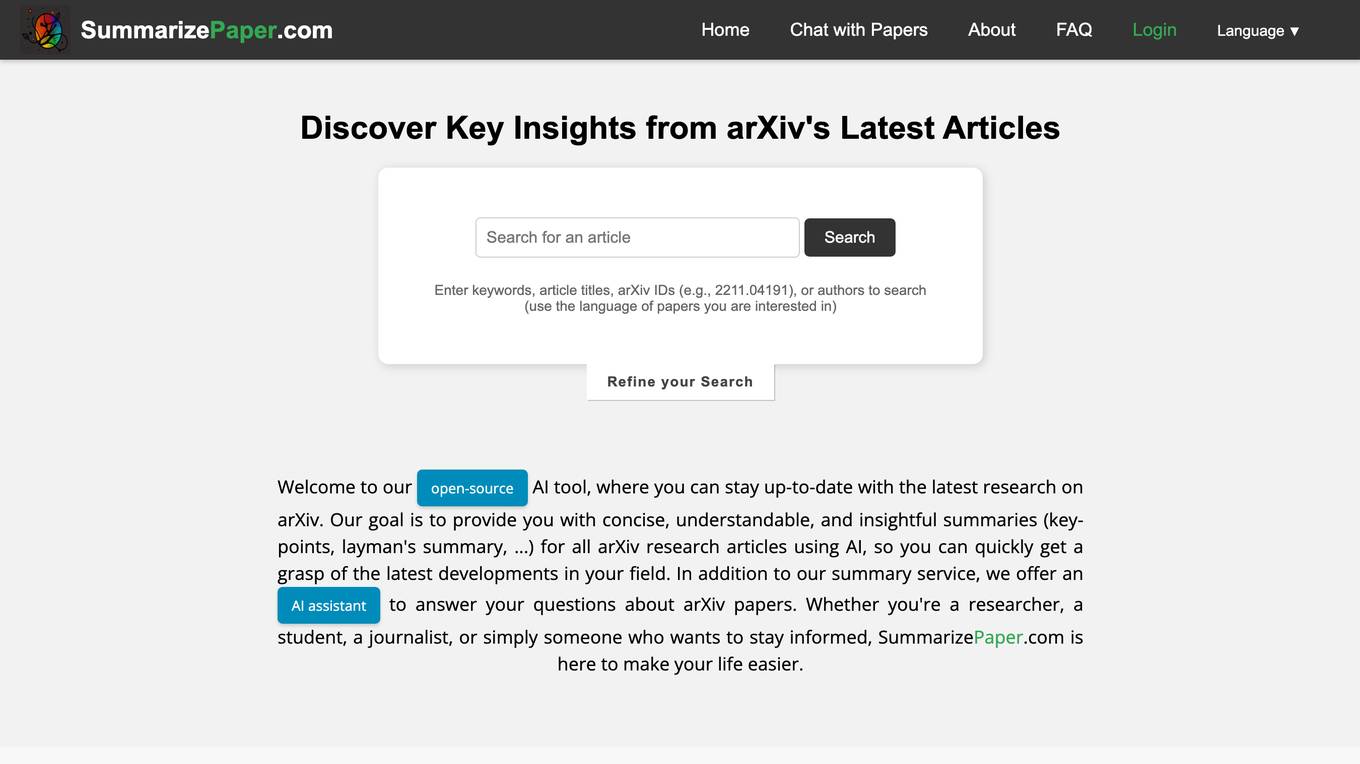
Summarize Paper .com
Summarize Paper .com is an open-source AI tool that provides concise, understandable, and insightful summaries of the latest research articles on arXiv. The tool uses AI to generate key points and layman's summaries of research papers, making it easy for users to stay up-to-date with the latest developments in their field. In addition to its summary service, Summarize Paper .com also offers an AI assistant that can answer questions about arXiv papers. The tool is designed to make it easy for researchers, students, journalists, and anyone else who wants to stay informed about the latest research to access and understand the latest findings.
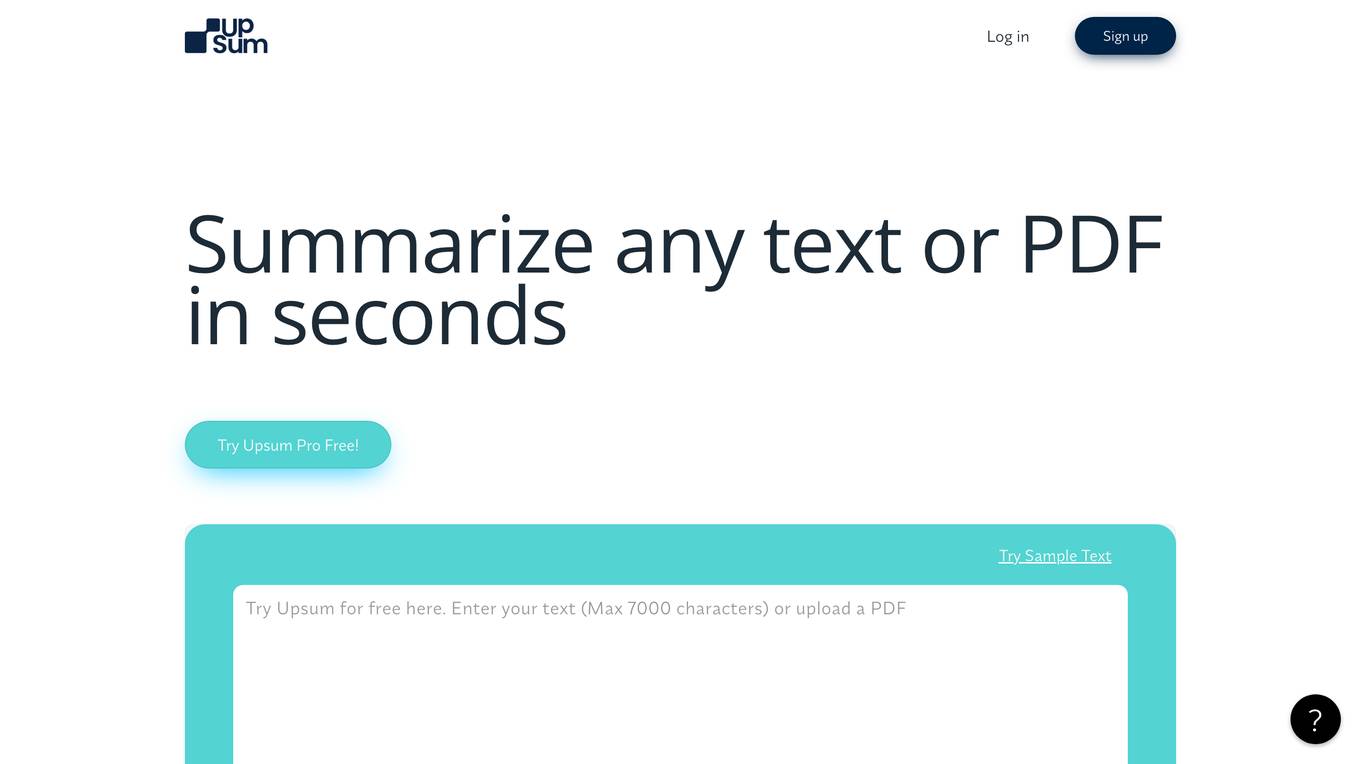
UpSum
UpSum is a text summarization tool that uses advanced AI technology to condense lengthy texts into concise summaries. It is designed to save users time and effort by extracting the key points and insights from documents, research papers, news articles, and other written content. UpSum's AI algorithm analyzes the text, identifies the most important sentences and phrases, and assembles them into a coherent summary that accurately represents the main ideas and key takeaways of the original text. The tool is easy to use, simply upload or paste your text, select the desired summary length, and click the summarize button. UpSum is available as a free web-based tool, as well as a premium subscription with additional features and capabilities.

Humata
Humata is a PDF AI that can summarize findings, compare documents, and search for answers in long technical papers. It is designed to help users save time and effort by automating the process of reading and understanding complex documents. Humata is easy to use and can be embedded in any webpage with a single click. It is also secure and reliable, with enterprise-grade data rooms and encryption to protect user data.
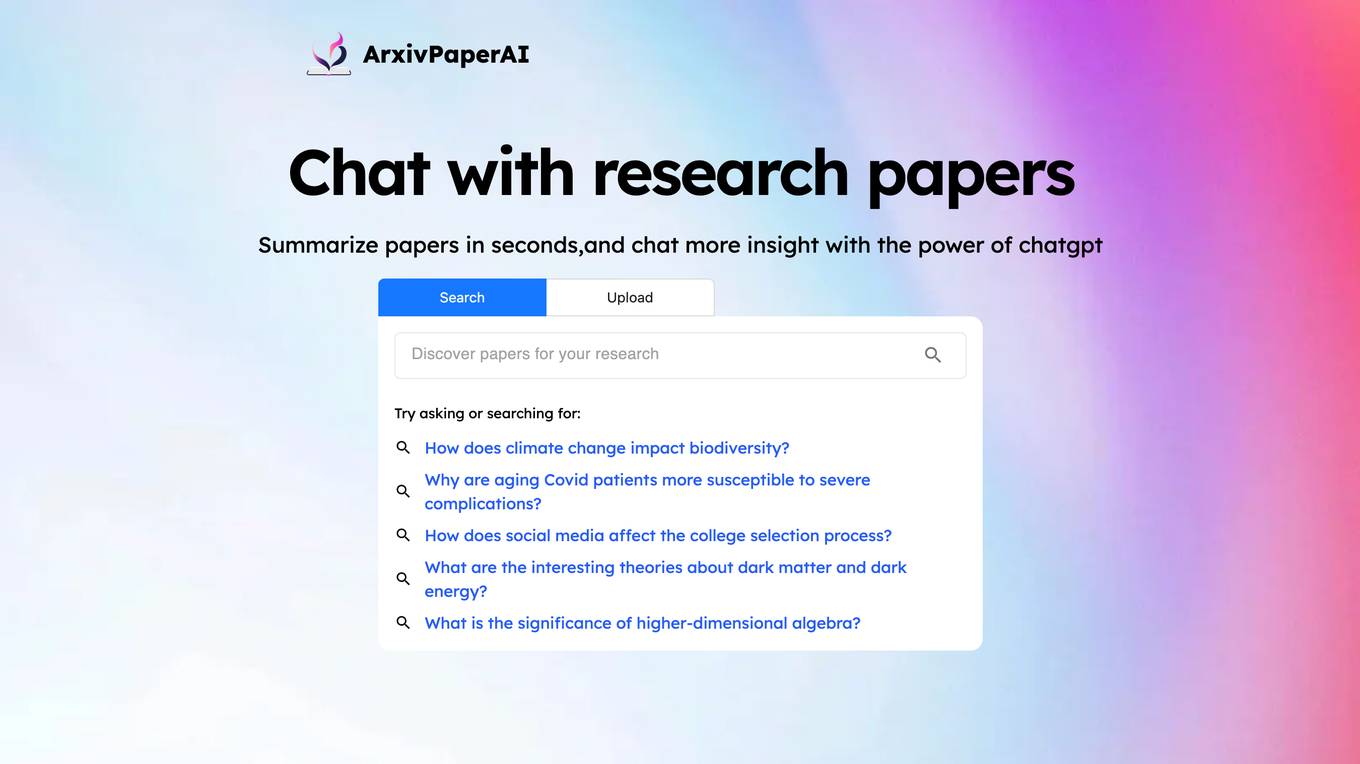
ArxivPaperAI
ArxivPaperAI is an AI-powered research paper summarizer that helps you quickly and easily understand the key points of academic papers. With ArxivPaperAI, you can:
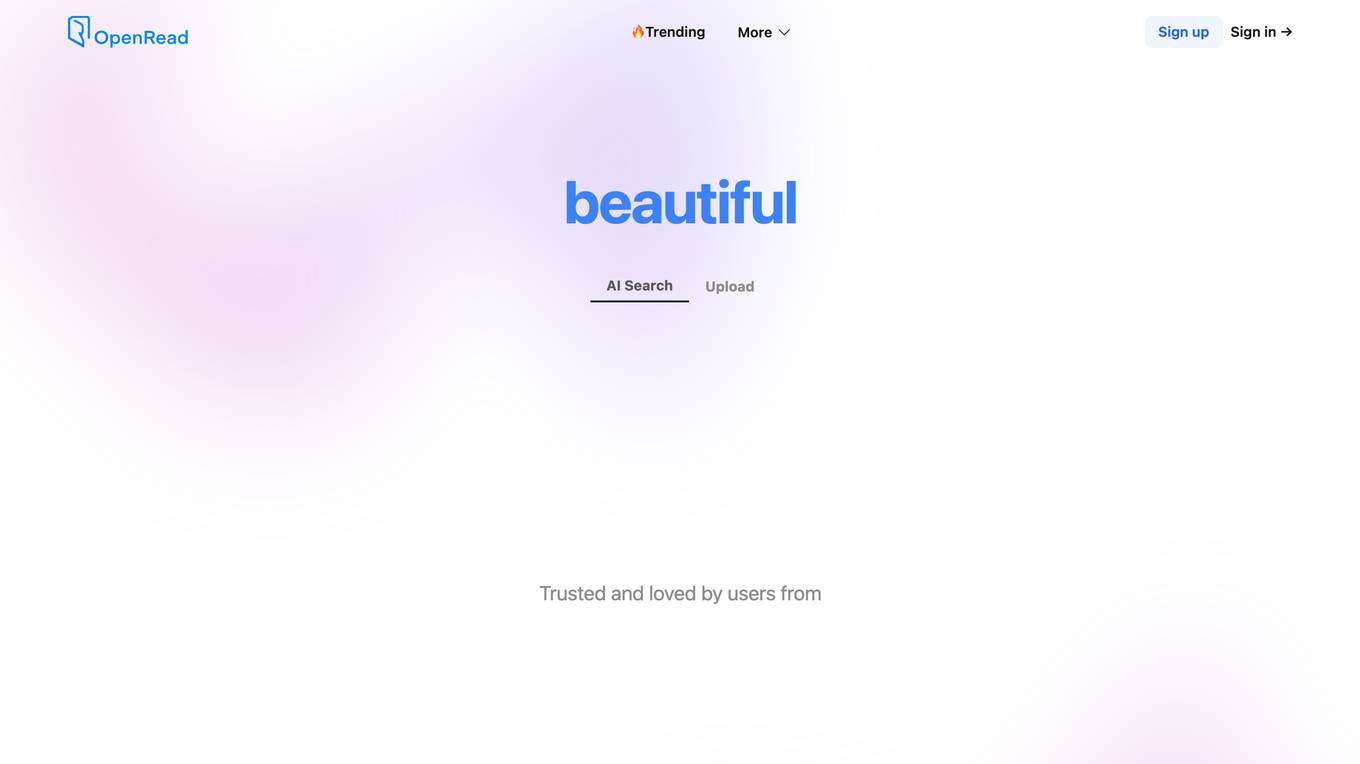
OpenRead
OpenRead is an AI-powered research tool that helps users discover, understand, and organize scientific literature. It offers a variety of features to make research more efficient and effective, including semantic search, AI summarization, and note-taking tools. OpenRead is designed to help researchers of all levels, from students to experienced professionals, save time and improve their research outcomes.

Bash
Bash is an AI-powered platform that helps users turn information into actionable insights and documents. It offers a wide range of tools for product management, marketing, content creation, research, and more. With features like AI content generation, meeting minute writing, research paper summarization, and content distribution planning, Bash aims to streamline work processes and boost productivity. Users can organize information, get insights, and write faster using the platform's guided workflows and templates. Bash is designed to assist individuals and teams in various industries by providing AI-powered solutions for knowledge management and content creation.
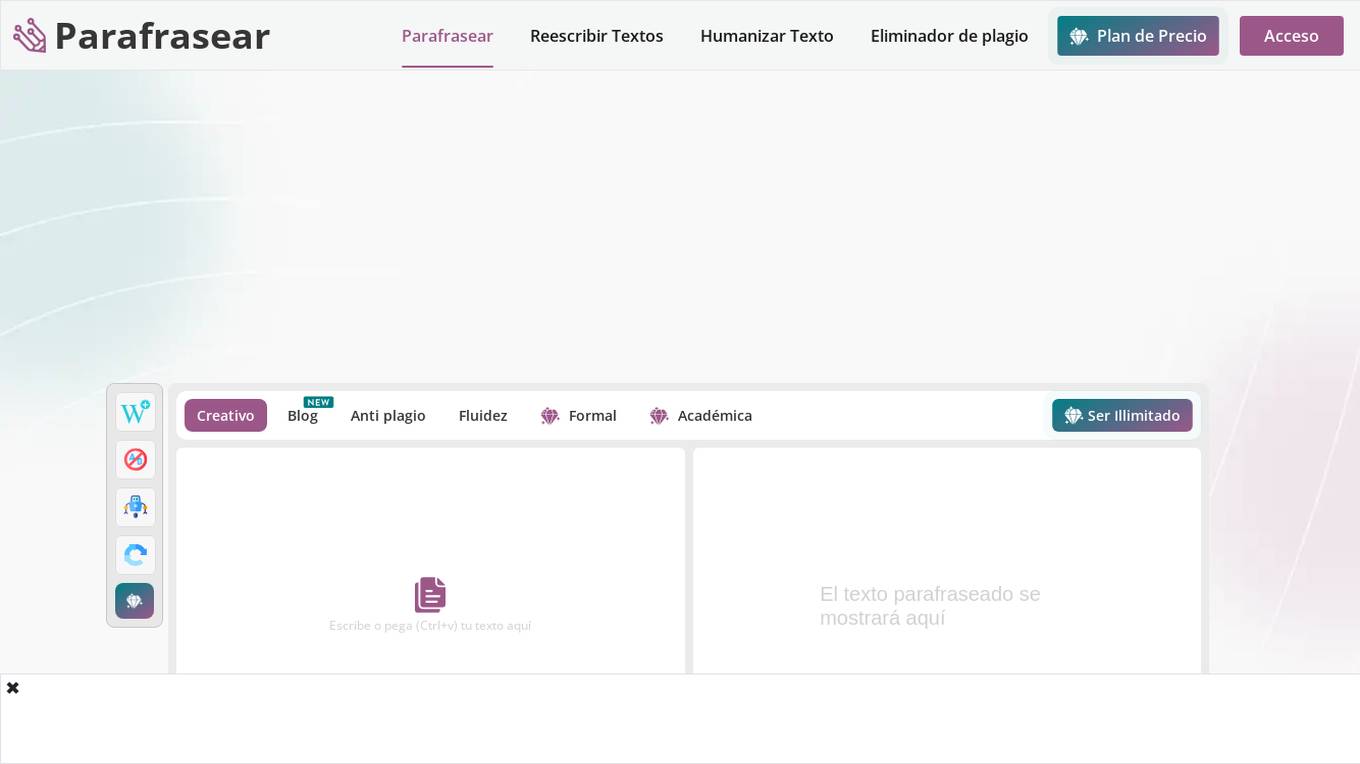
Parafrasear.ai
Parafrasear.ai is an advanced AI-powered paraphrasing tool that helps users rewrite existing text, ideas, and information using different words. It offers various modes of rewriting, such as general, anti-plagiarism, fluency, academic, blog, and formal, catering to different user needs. The tool ensures contextual accuracy in paraphrased content, making it ideal for writers, SEO executives, students, marketers, and researchers. With features like free usage, compatibility across devices, plagiarism-free rewriting, customization options, and user-friendly interface, Parafrasear.ai stands out as a reliable platform for text paraphrasing in Spanish.
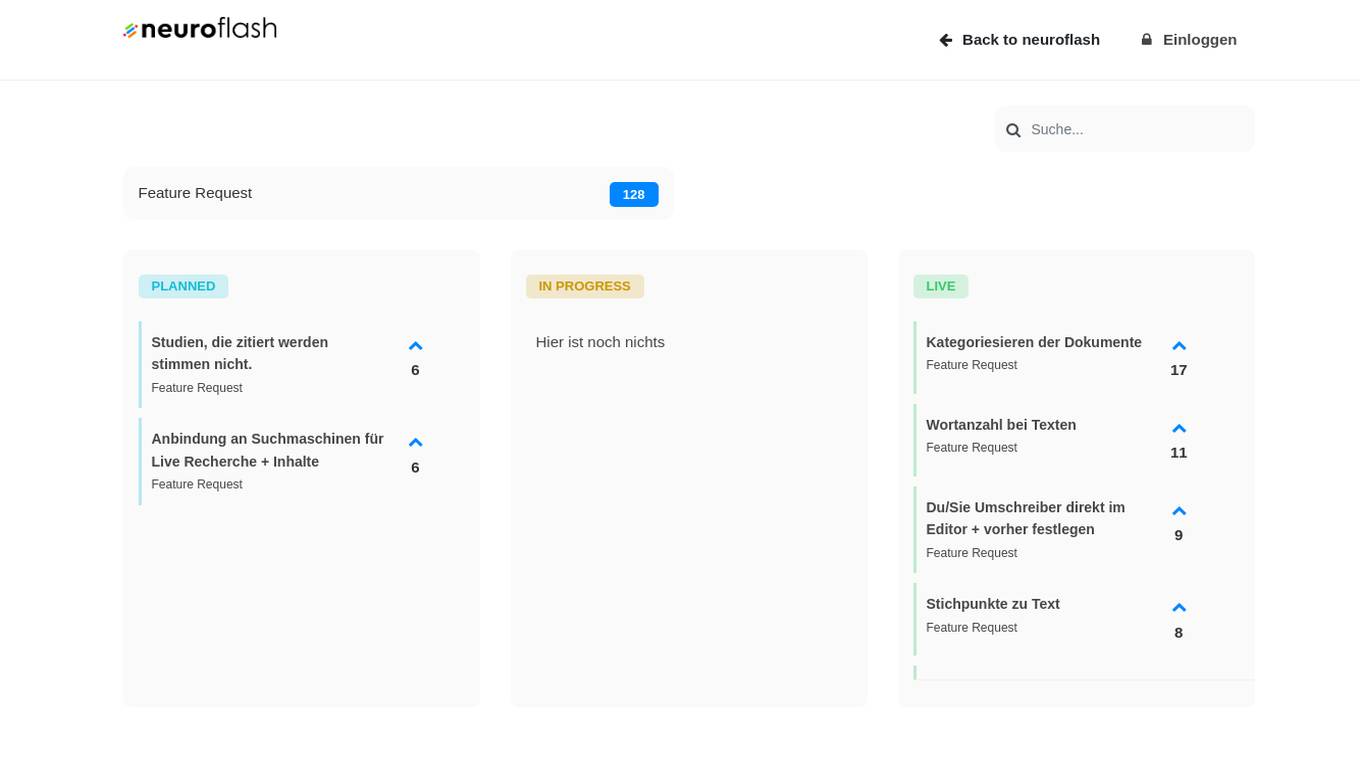
Neuroflash
Neuroflash is a powerful AI-powered writing assistant that can help you with a variety of writing tasks, from generating creative content to summarizing long documents. With Neuroflash, you can quickly and easily create high-quality content that is both informative and engaging.
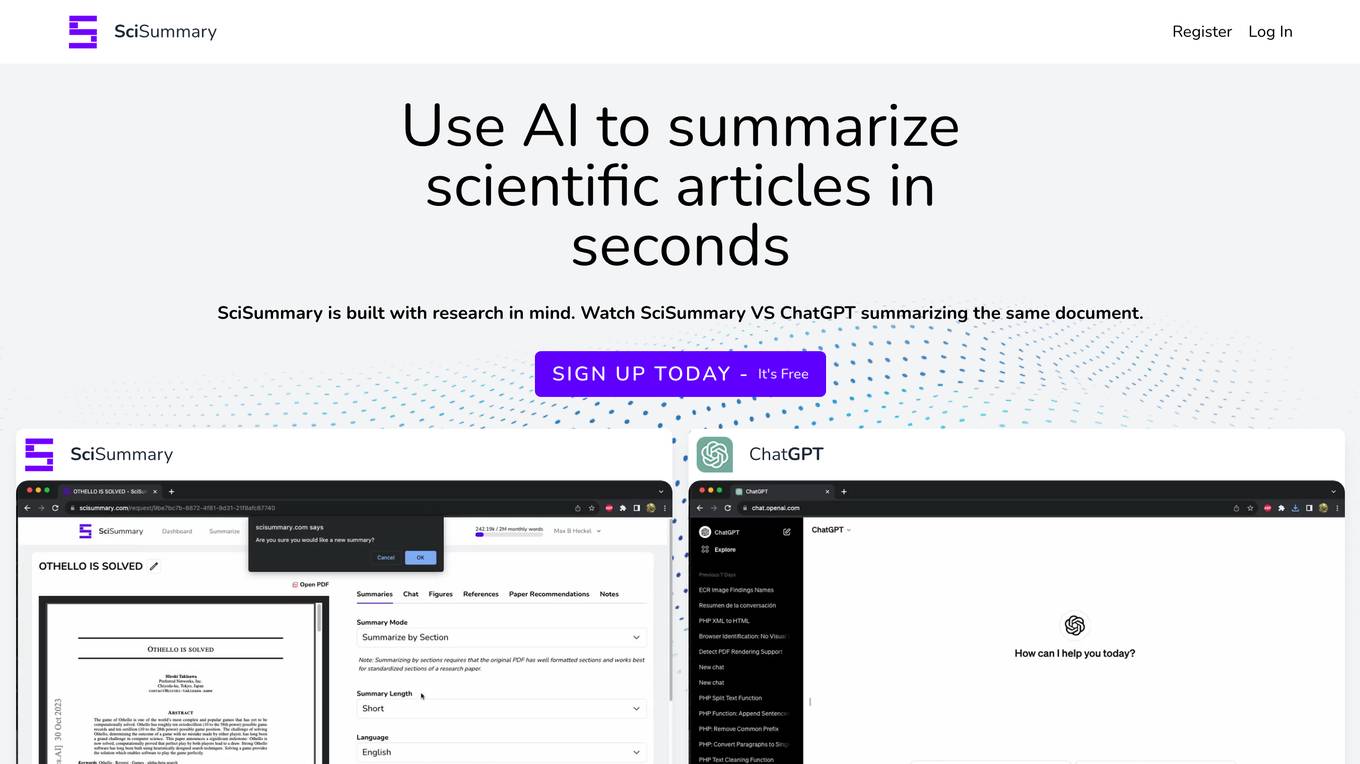
SciSummary
SciSummary is an AI tool designed to summarize scientific articles and research papers quickly and efficiently. It utilizes advanced AI technology, specifically GPT-3.5 and GPT-4 models, to provide accurate and concise summaries for busy scientists, students, and enthusiasts. The platform allows users to submit documents via email, upload articles to the dashboard, or attach PDFs for summarization. With features like unlimited summaries, figure and table analysis, and chat messages, SciSummary is a valuable resource for researchers looking to stay updated with the latest trends in research.
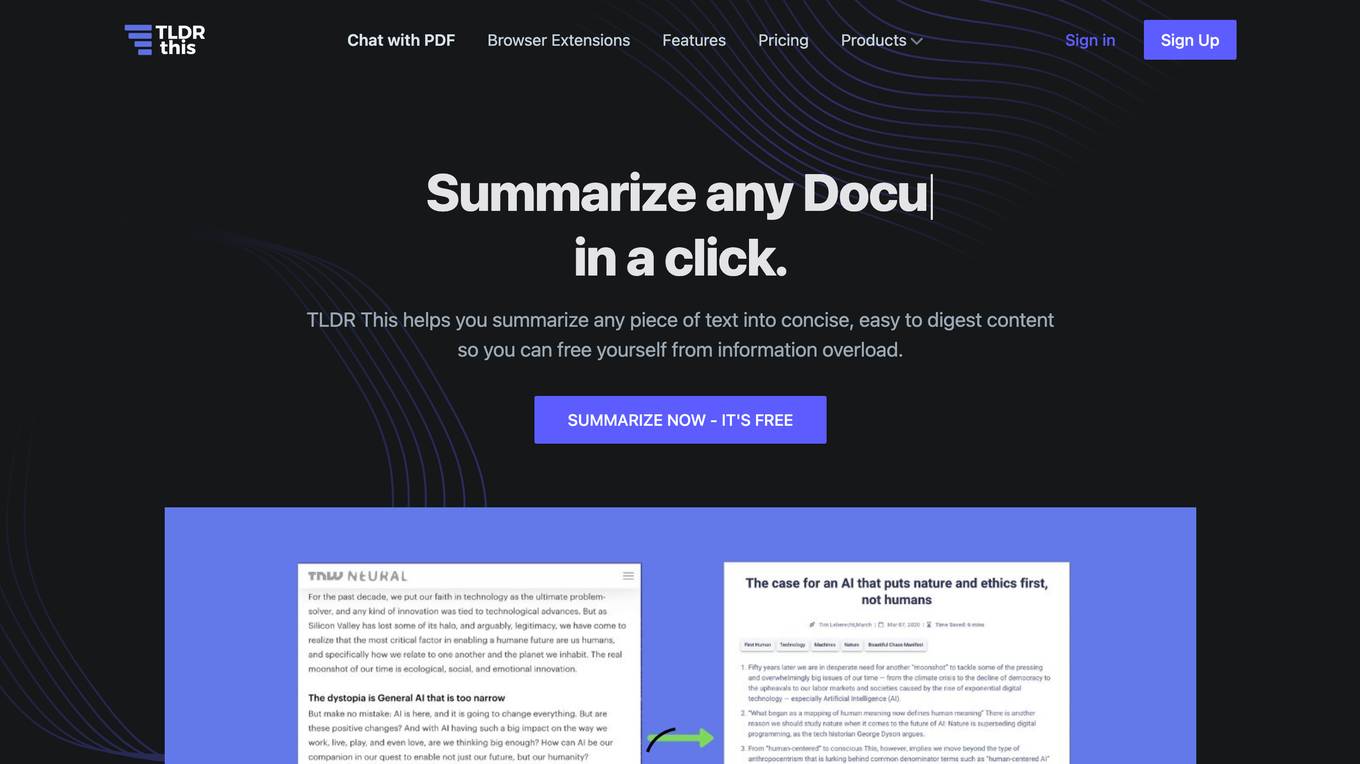
TLDR This
TLDR This is an online article summarizer tool that helps users quickly understand the essence of lengthy content. It uses AI to analyze any piece of text and summarize it automatically, in a way that makes it easy to read, understand, and act on. TLDR This also extracts essential metadata such as author and date information, related images, and the title. Additionally, it estimates the reading time for news articles and blog posts, ensuring users have all the necessary information consolidated in one place for efficient reading. TLDR This is designed for students, writers, teachers, institutions, journalists, and any internet user who needs to quickly understand the essence of lengthy content.

Bibit AI
Bibit AI is a real estate marketing AI designed to enhance the efficiency and effectiveness of real estate marketing and sales. It can help create listings, descriptions, and property content, and offers a host of other features. Bibit AI is the world's first AI for Real Estate. We are transforming the real estate industry by boosting efficiency and simplifying tasks like listing creation and content generation.
2 - Open Source AI Tools
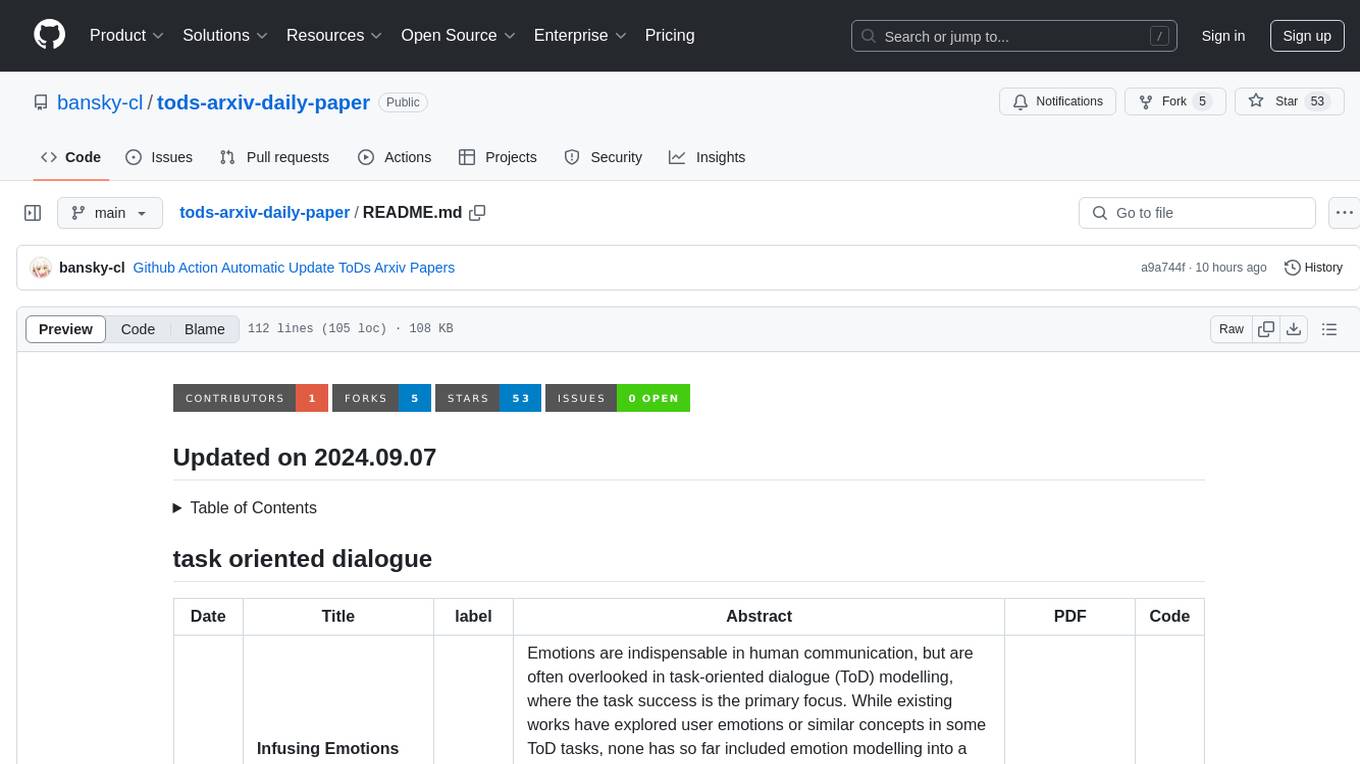
tods-arxiv-daily-paper
This repository provides a tool for fetching and summarizing daily papers from the arXiv repository. It allows users to stay updated with the latest research in various fields by automatically retrieving and summarizing papers on a daily basis. The tool simplifies the process of accessing and digesting academic papers, making it easier for researchers and enthusiasts to keep track of new developments in their areas of interest.

papersgpt-for-zotero
PapersGPT For Zotero is an AI plugin that enhances papers reading and research efficiency by integrating cutting-edge LLMs and offering seamless Zotero integration. Users can ask questions, extract insights, and converse with PDFs directly, making it a powerful research assistant for scholars, researchers, and anyone dealing with large amounts of text in PDF format. The plugin ensures privacy and data safety by using locally stored models and modules, with the ability to switch between different models easily. It provides a user-friendly interface for managing and chatting documents within Zotero, making research tasks more streamlined and productive.
20 - OpenAI Gpts
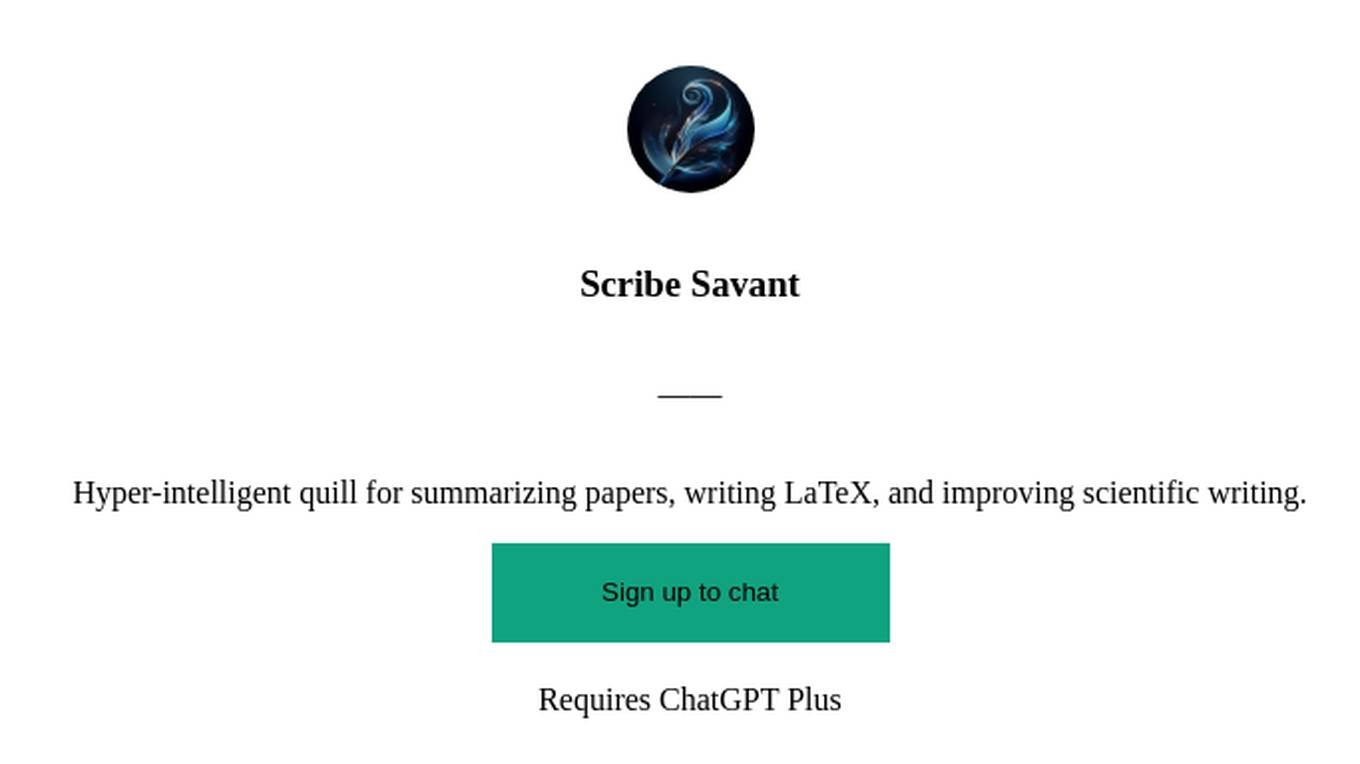
Scribe Savant
Hyper-intelligent quill for summarizing papers, writing LaTeX, and improving scientific writing.
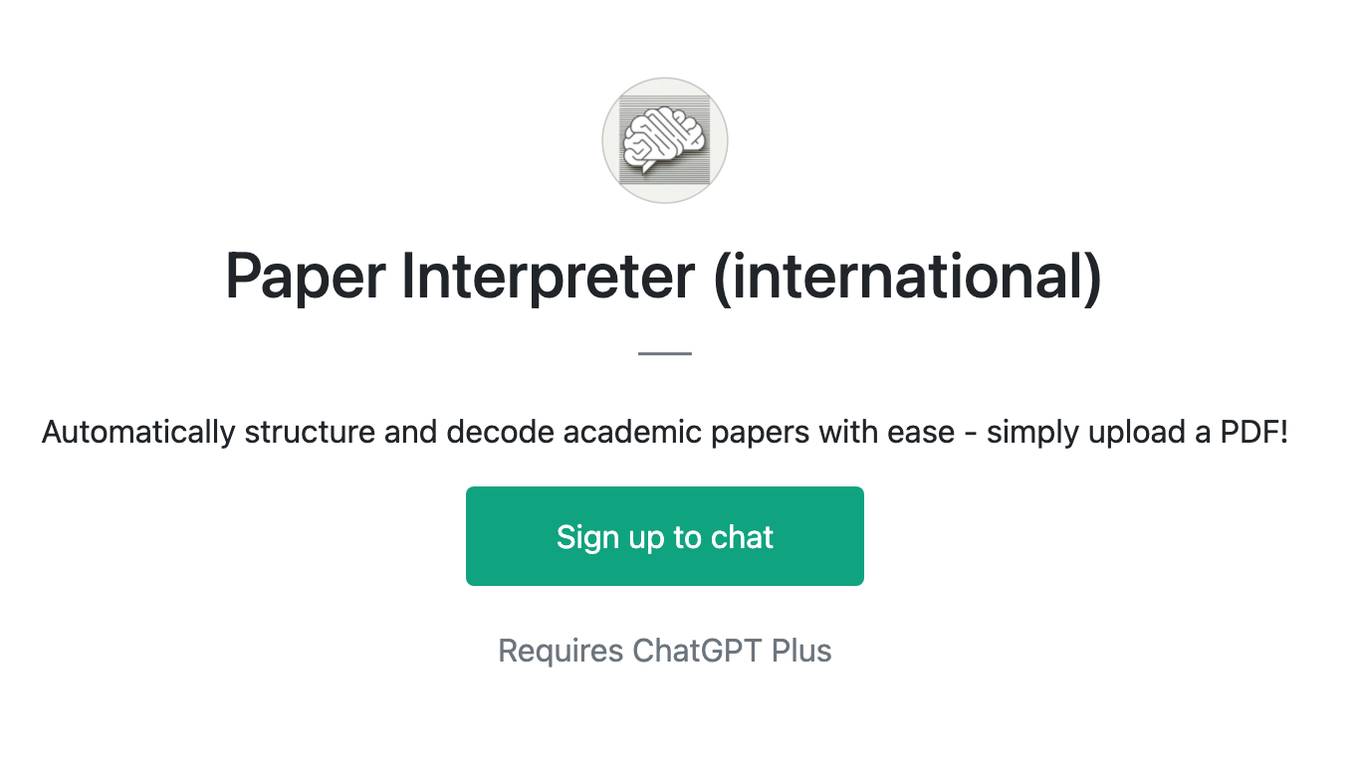
Paper Interpreter (international)
Automatically structure and decode academic papers with ease - simply upload a PDF!
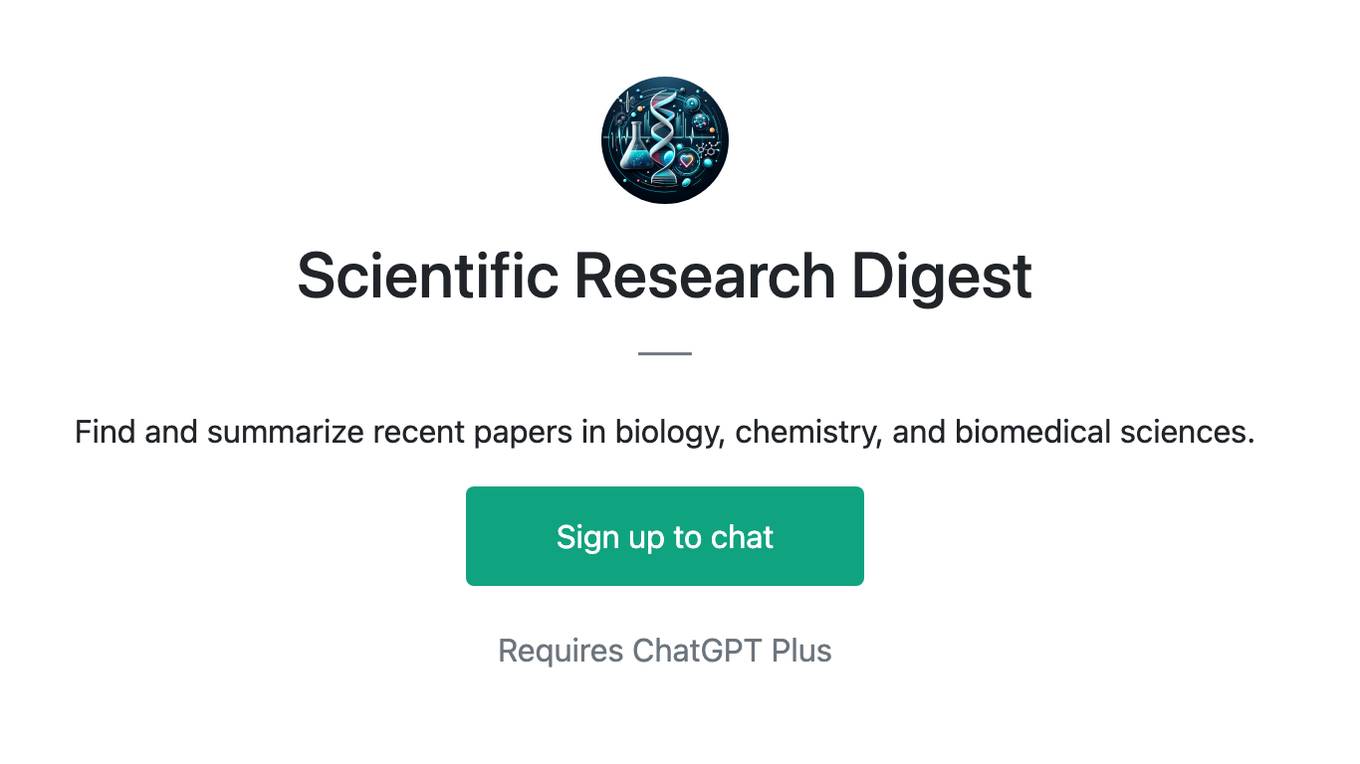
Scientific Research Digest
Find and summarize recent papers in biology, chemistry, and biomedical sciences.
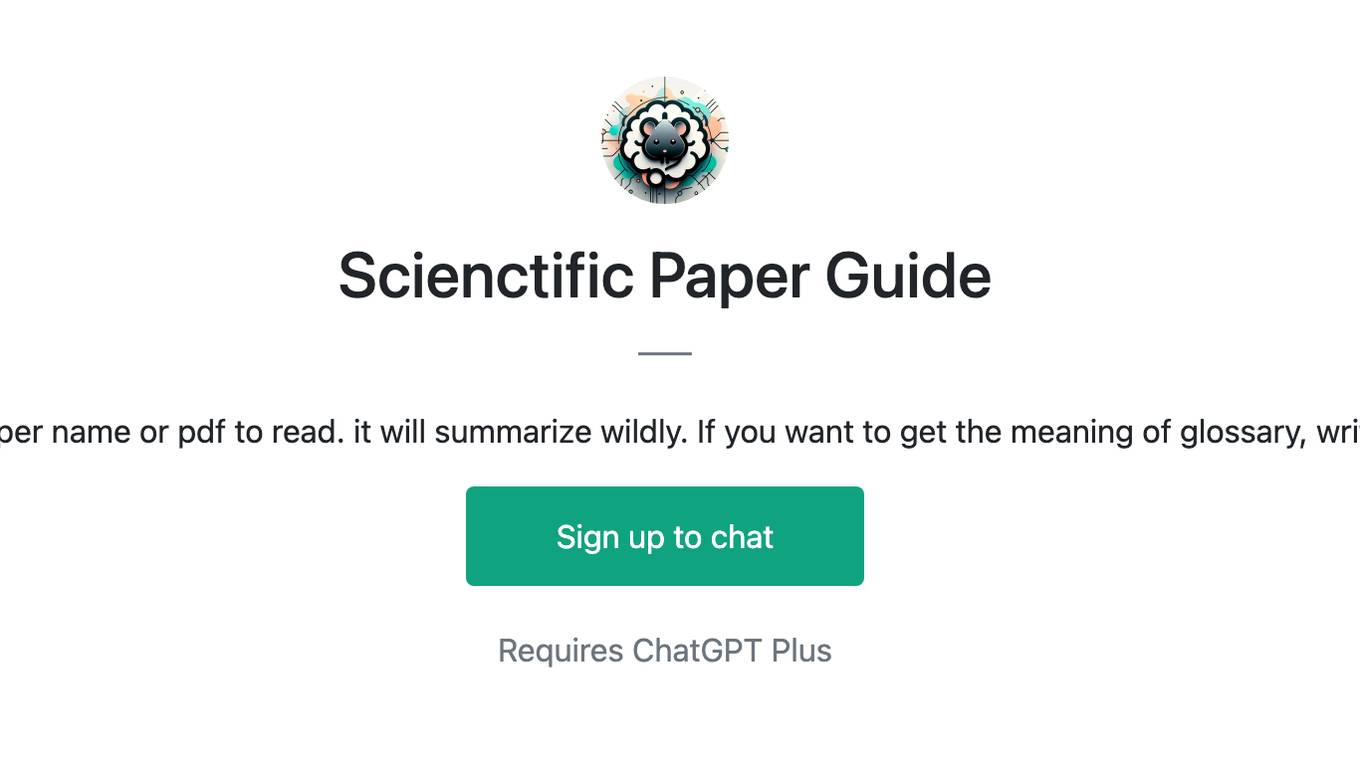
Scienctific Paper Guide
Put paper name or pdf to read. it will summarize wildly. If you want to get the meaning of glossary, write G.
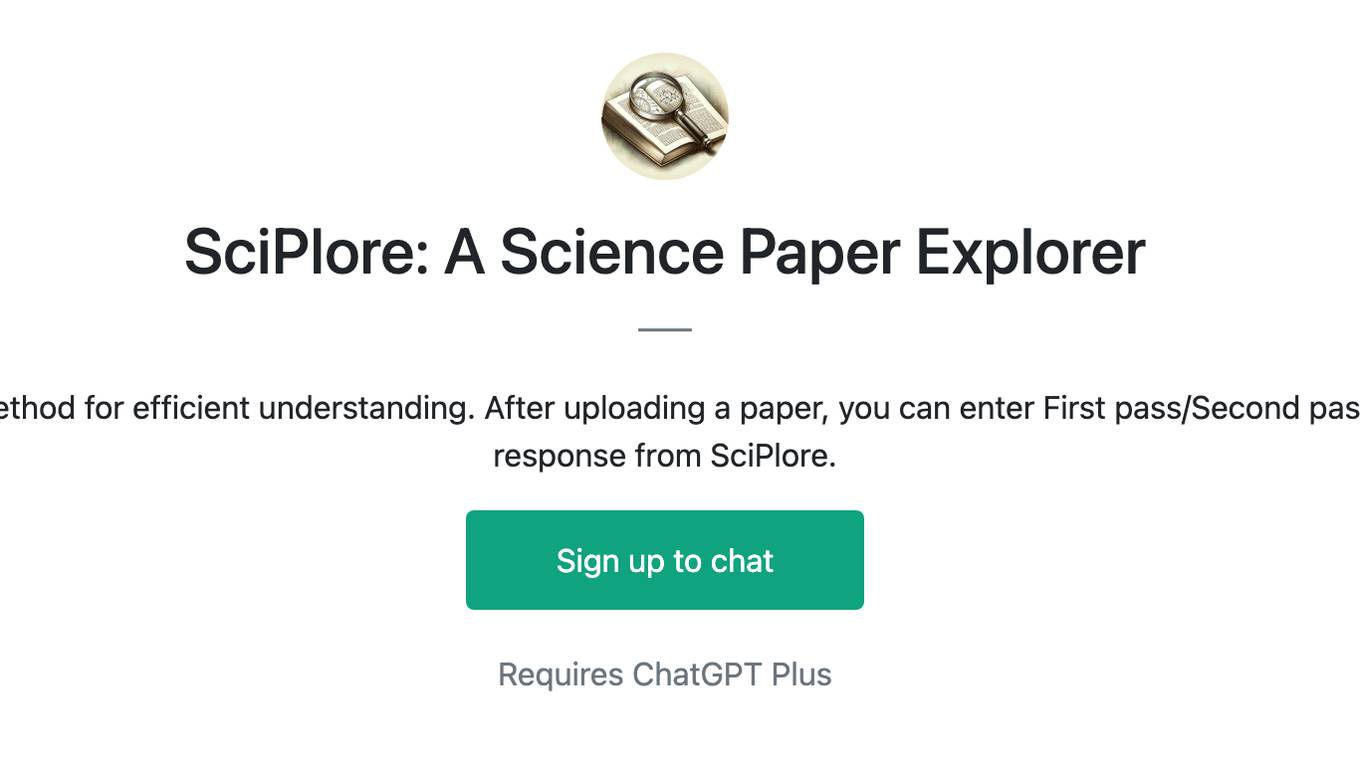
SciPlore: A Science Paper Explorer
Explain scientific papers using the 3-pass method for efficient understanding. After uploading a paper, you can enter First pass/Second pass /Third pass / Q&A to get different level of response from SciPlore.
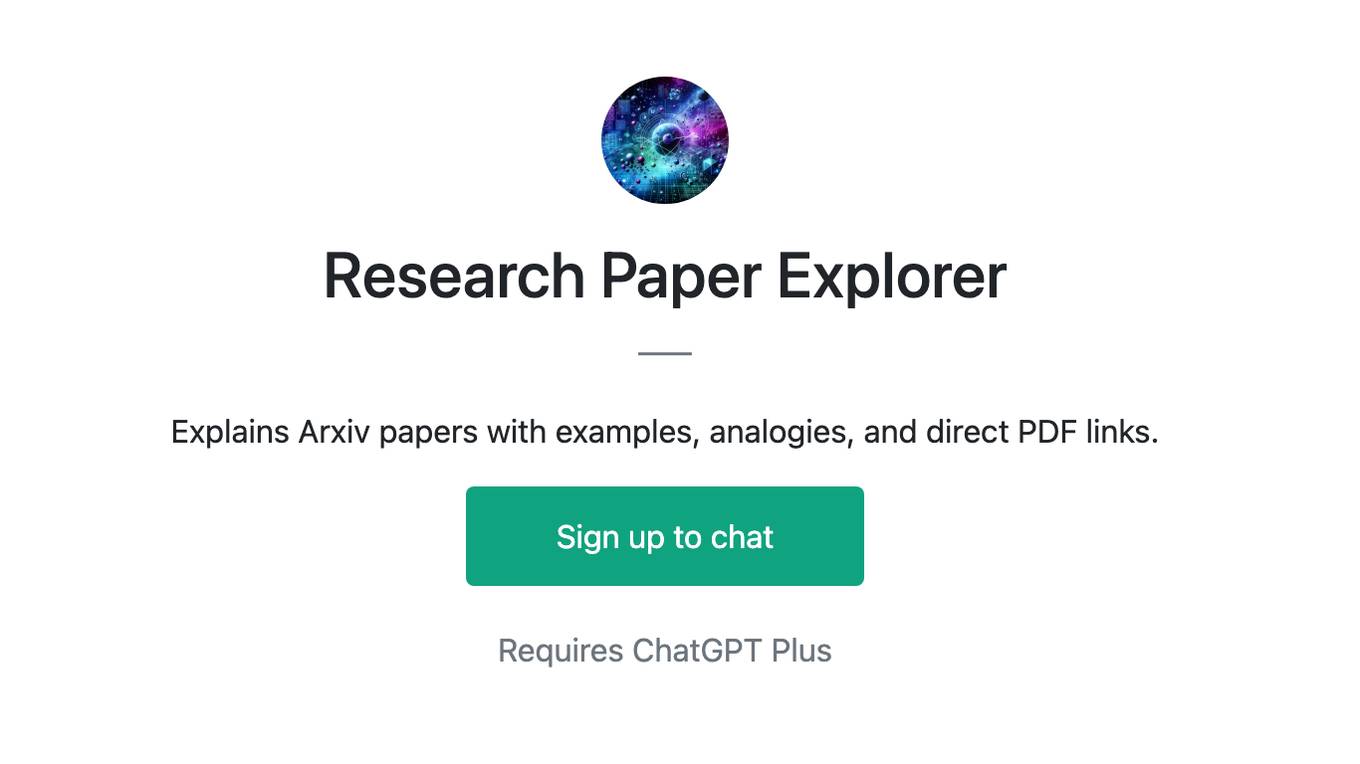
Research Paper Explorer
Explains Arxiv papers with examples, analogies, and direct PDF links.
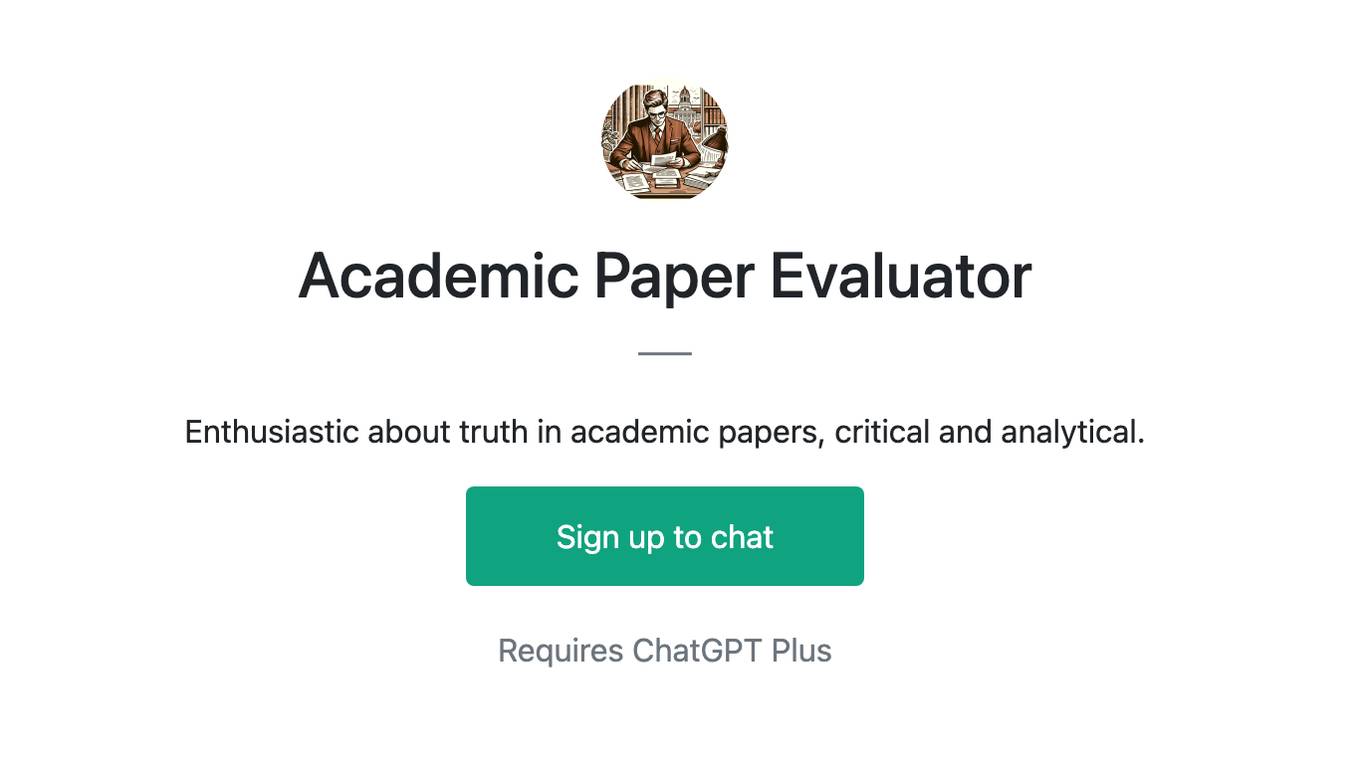
Academic Paper Evaluator
Enthusiastic about truth in academic papers, critical and analytical.
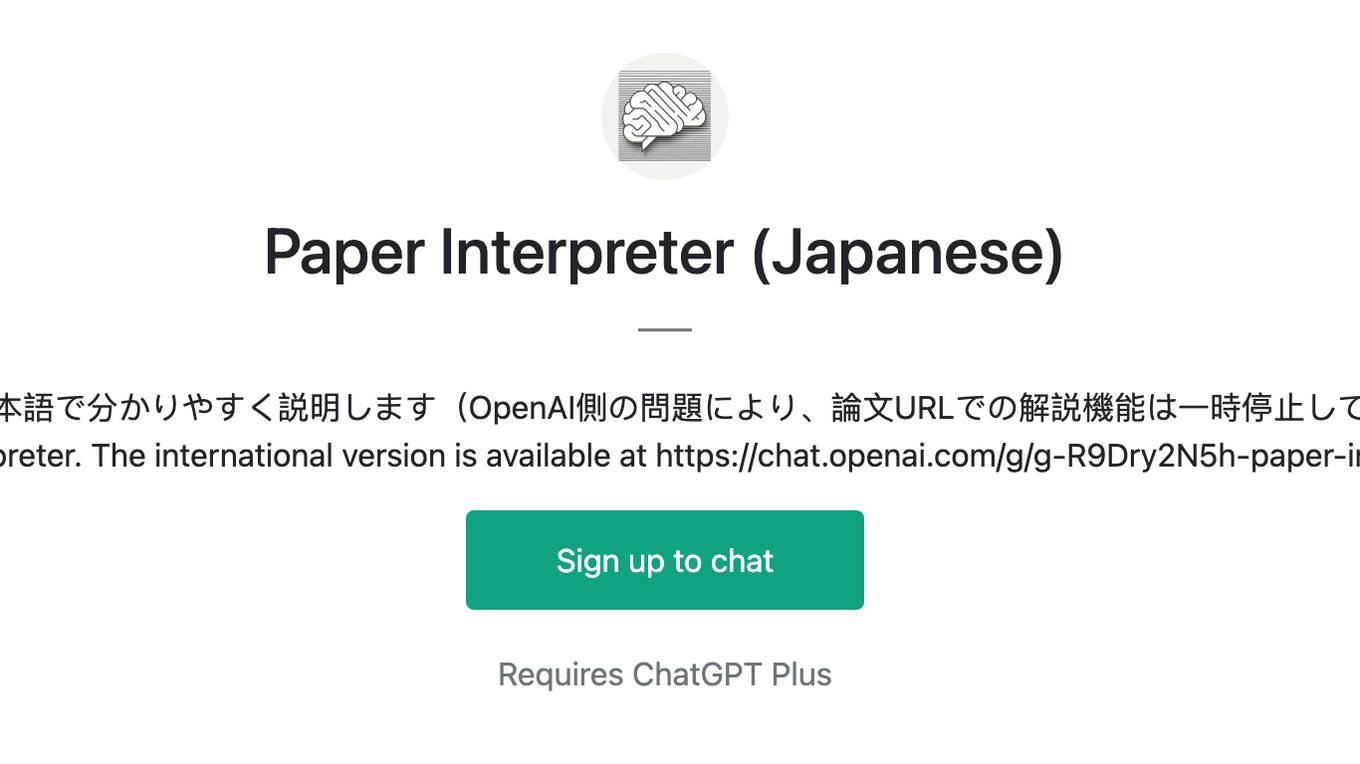
Paper Interpreter (Japanese)
論文のPDFをアップロードすると、内容を日本語で分かりやすく説明します(OpenAI側の問題により、論文URLでの解説機能は一時停止しています)。This is the Japanese version of Paper Interpreter. The international version is available at https://chat.openai.com/g/g-R9Dry2N5h-paper-interpreter
